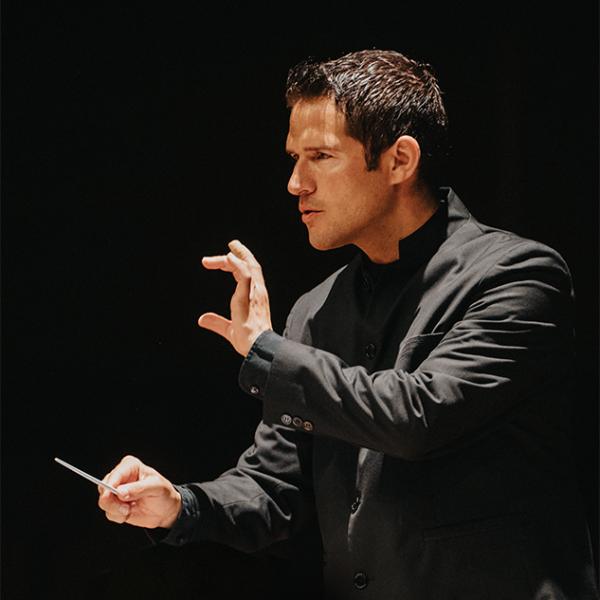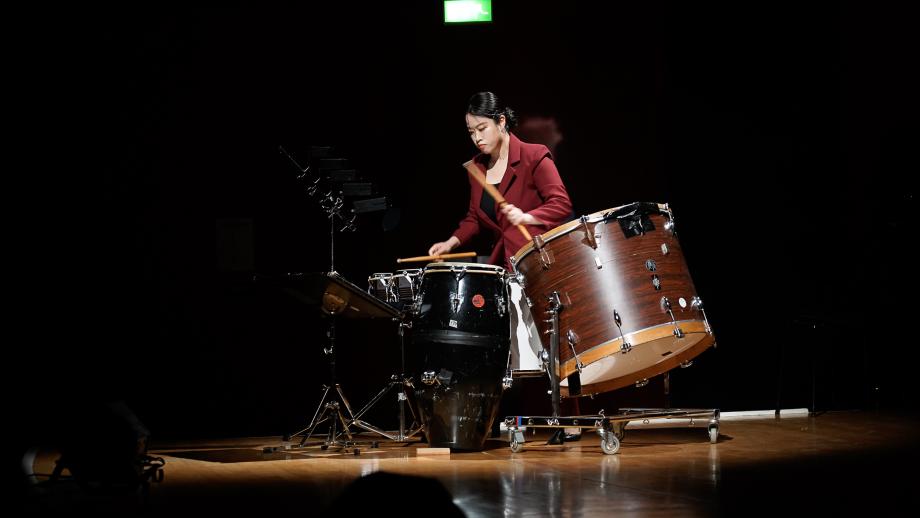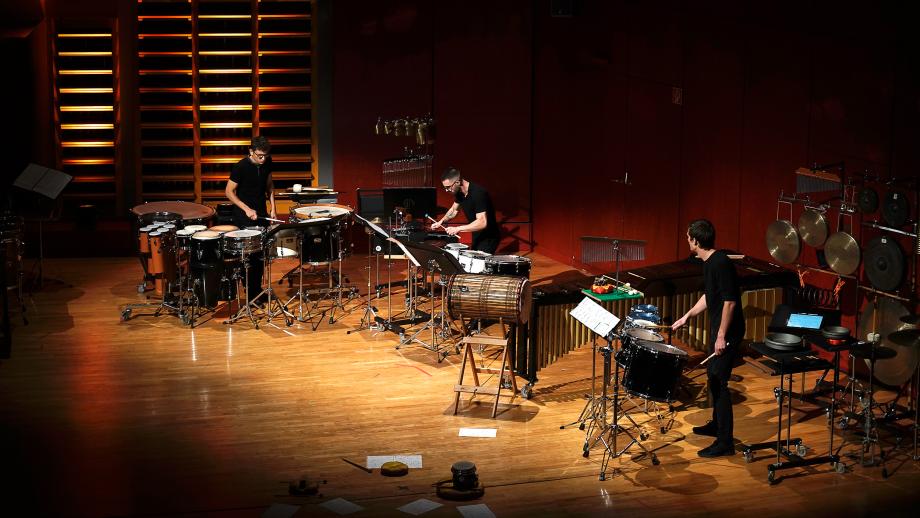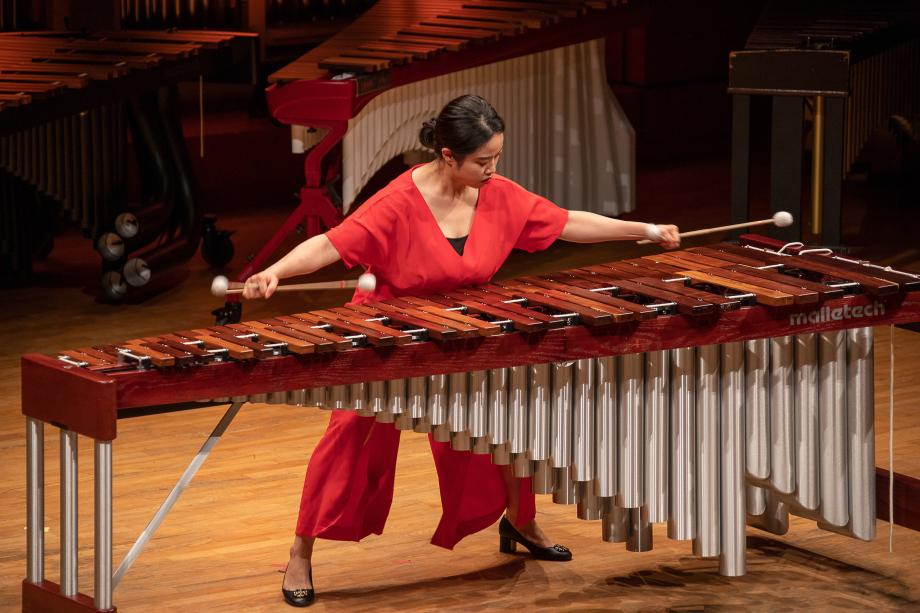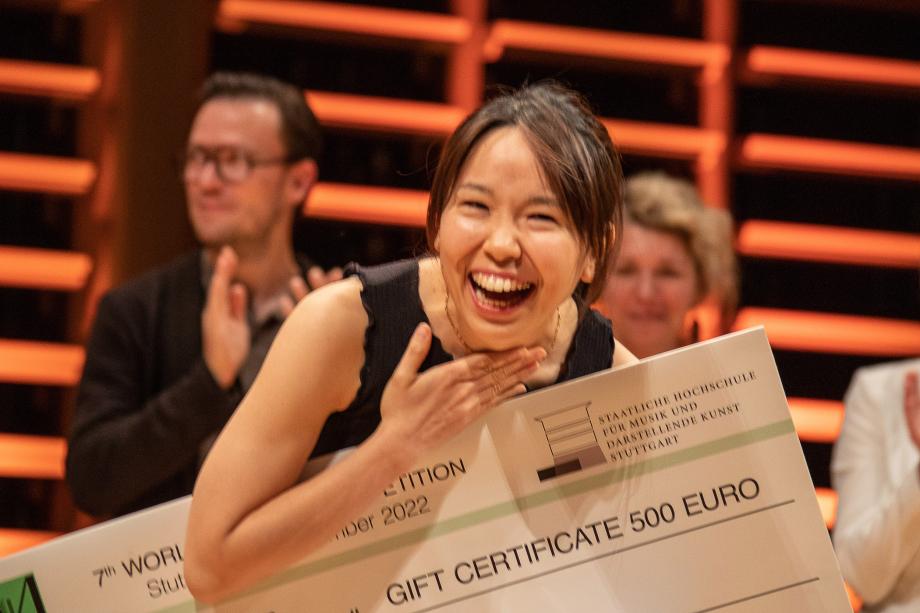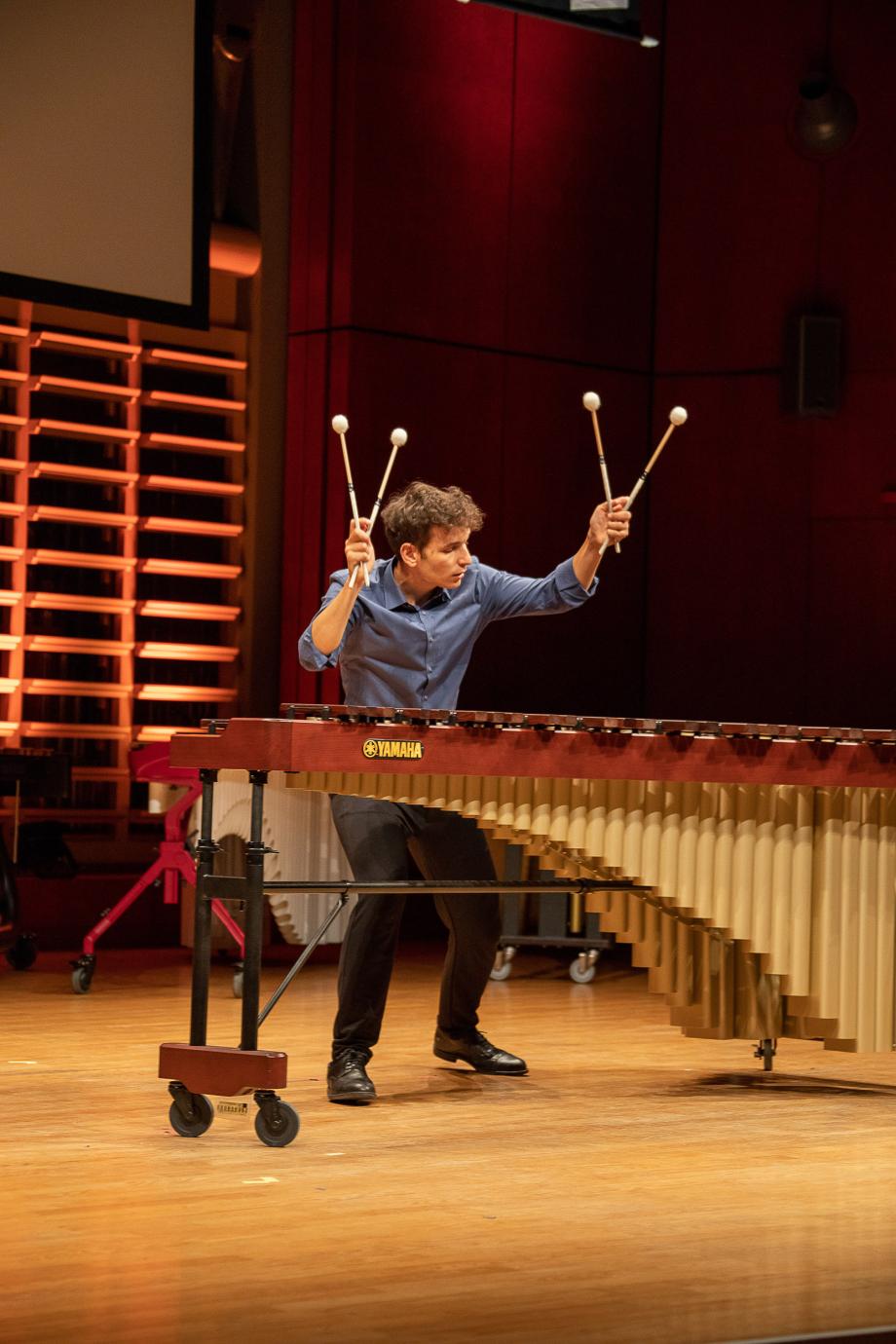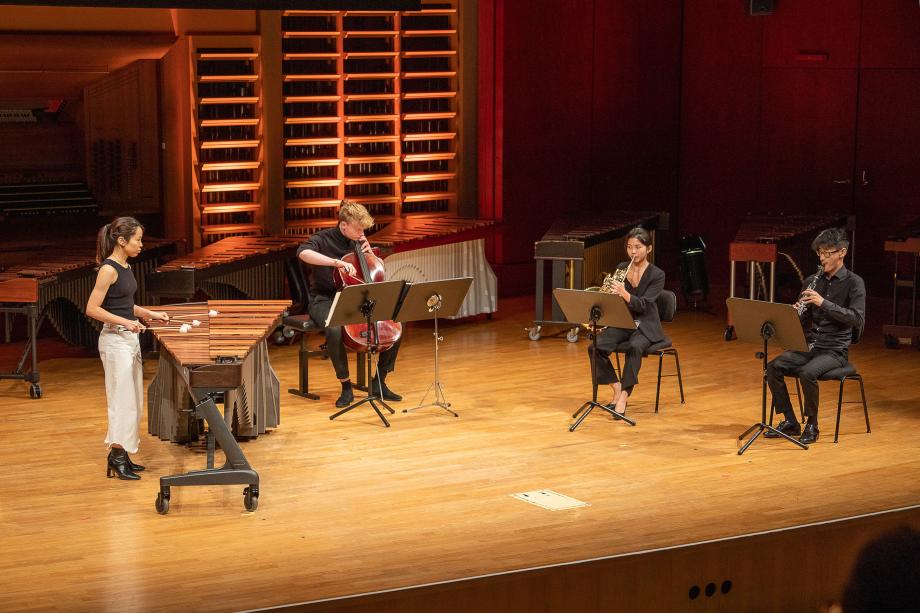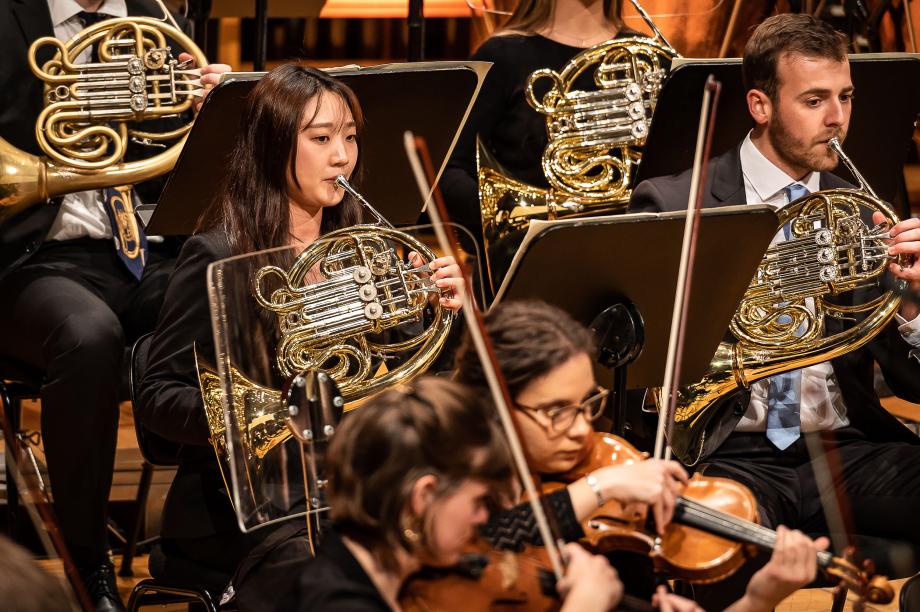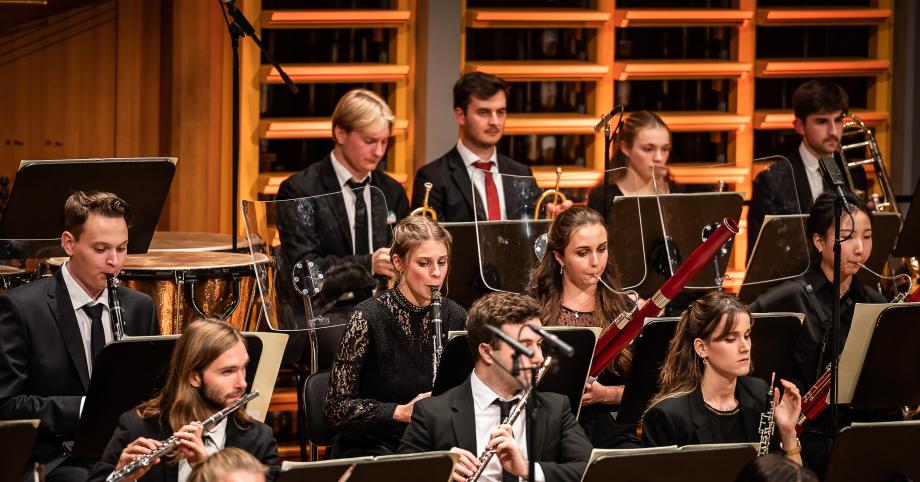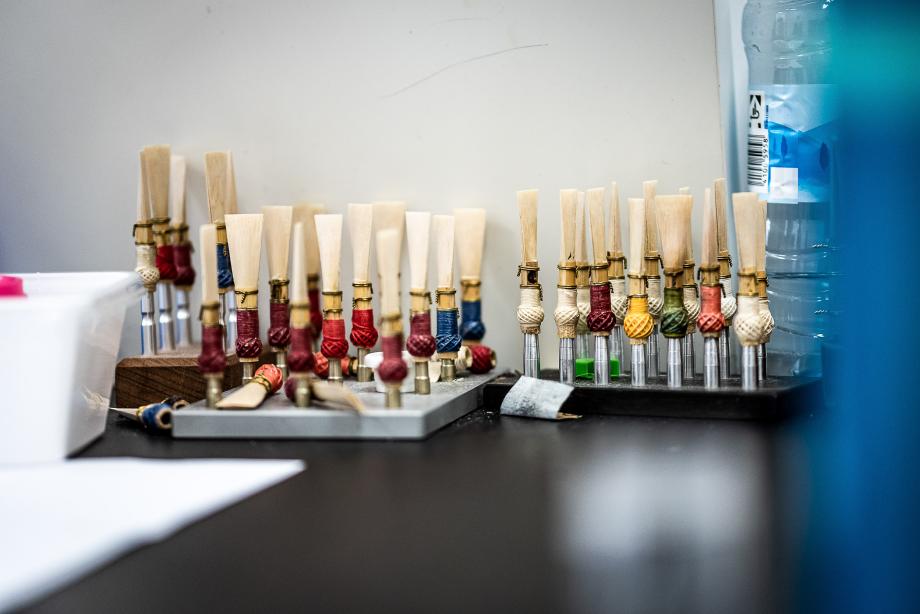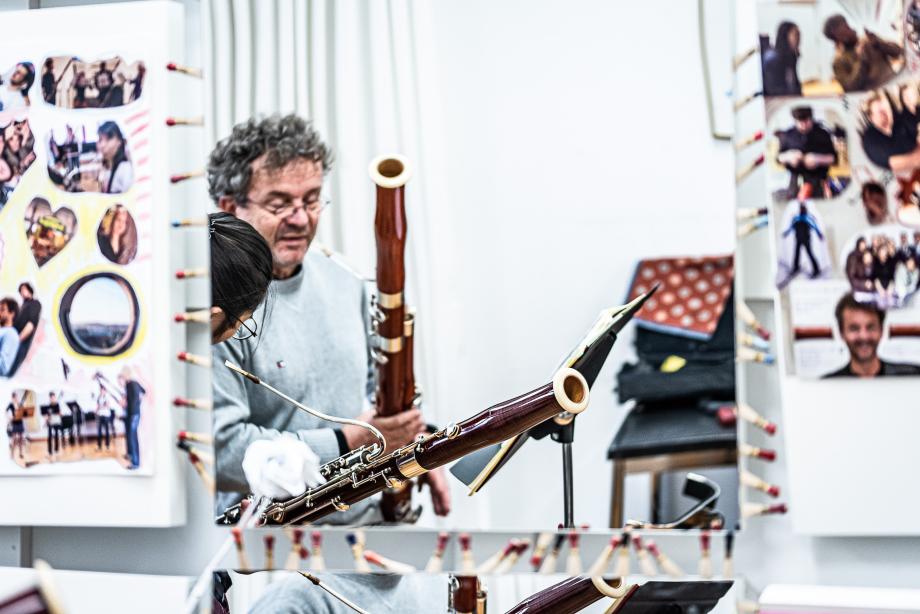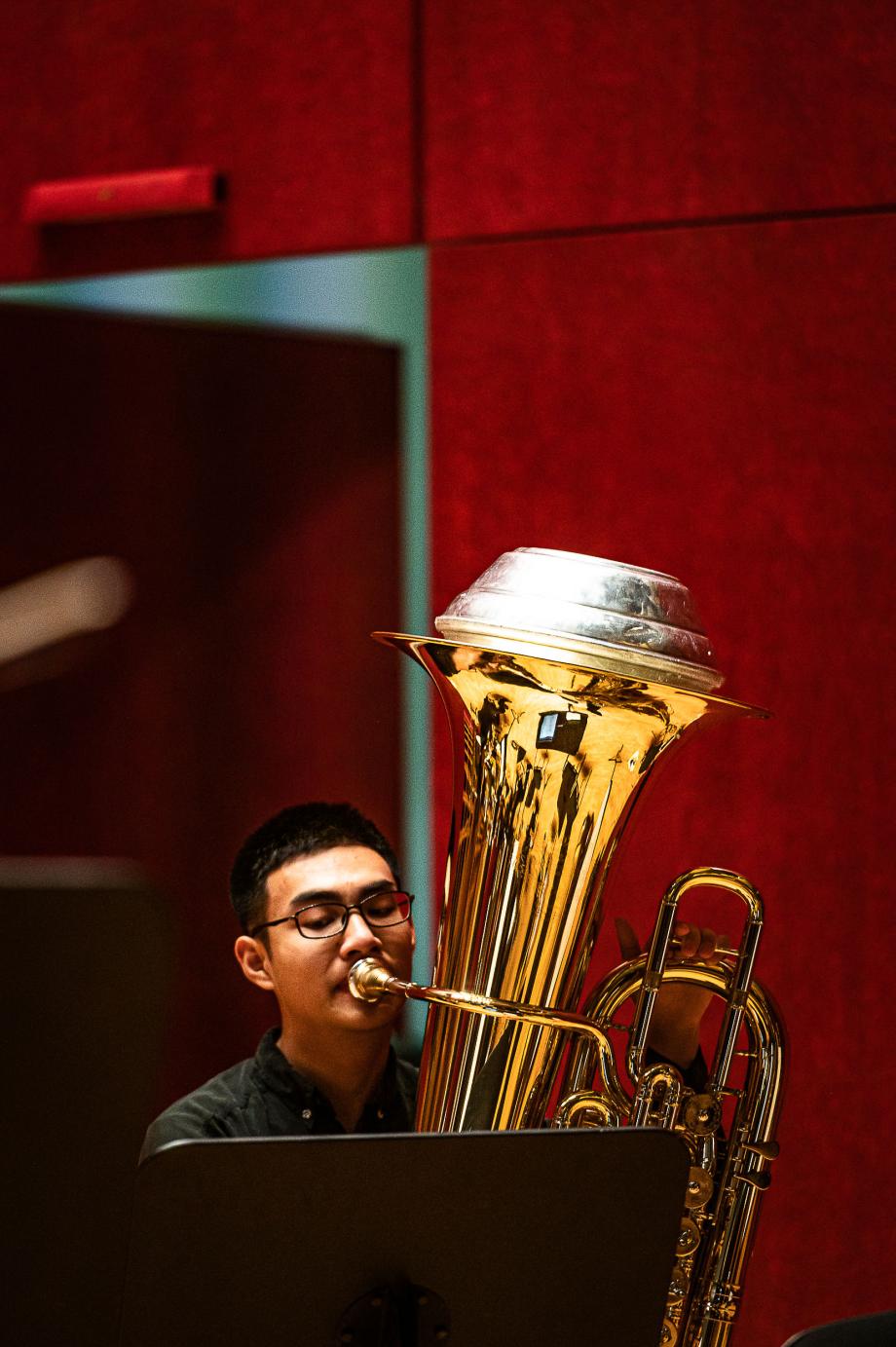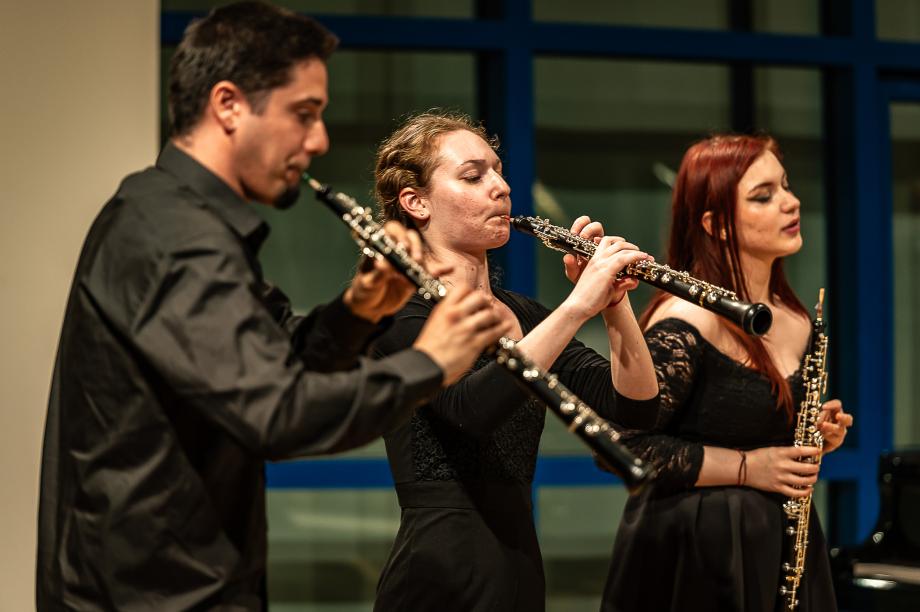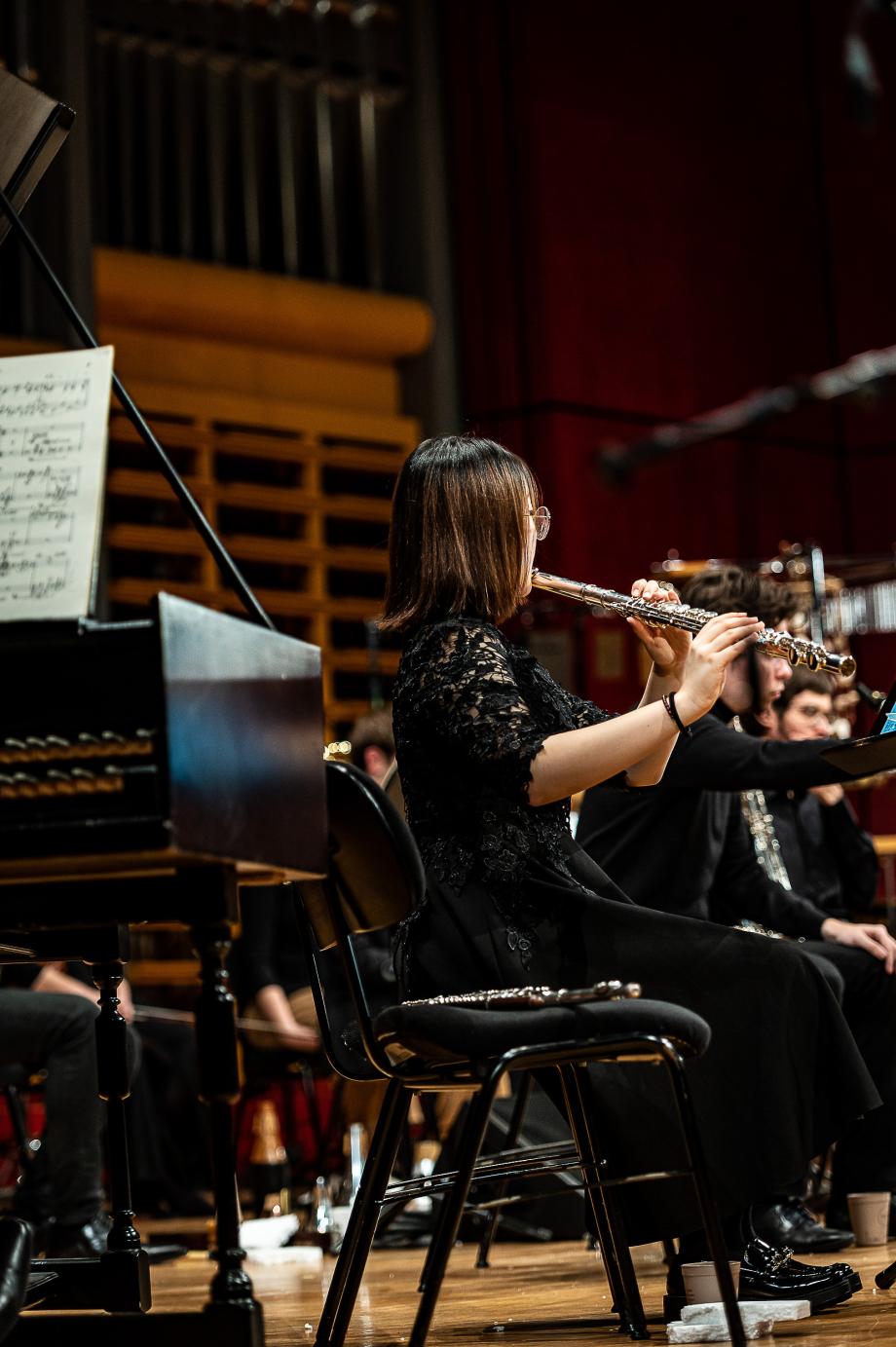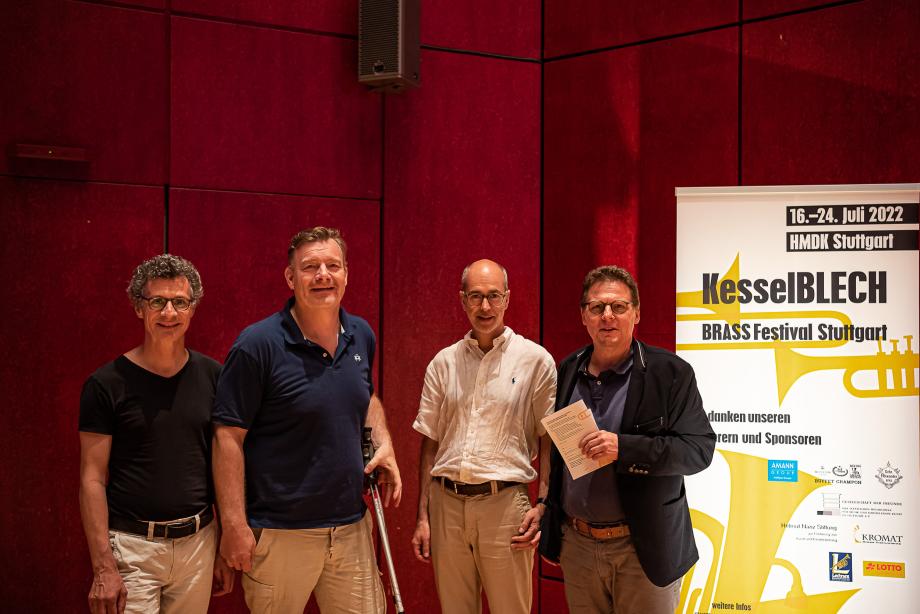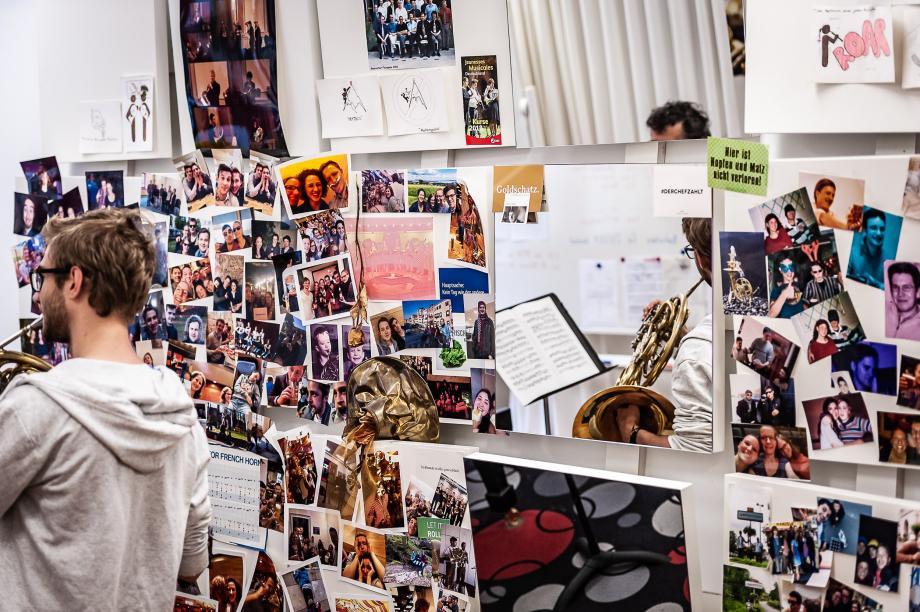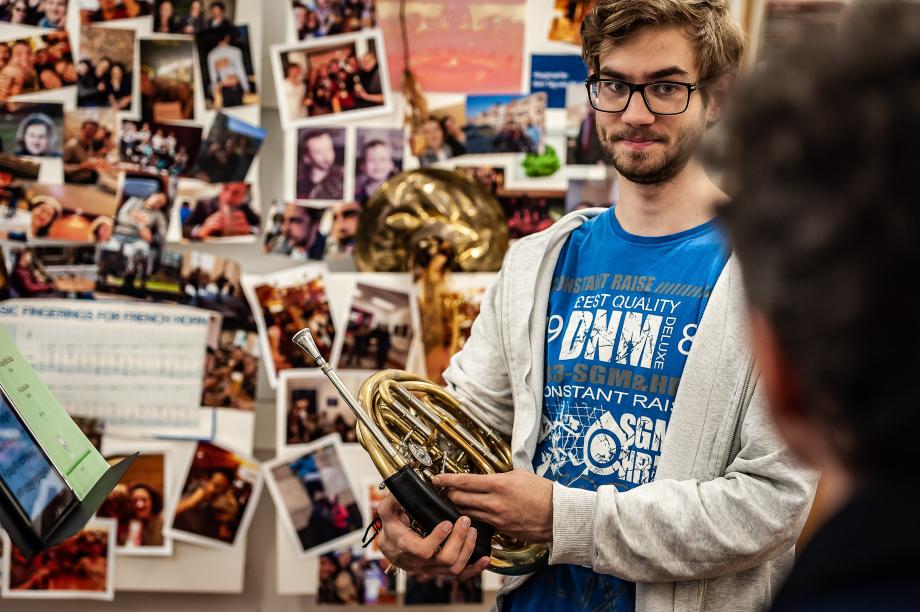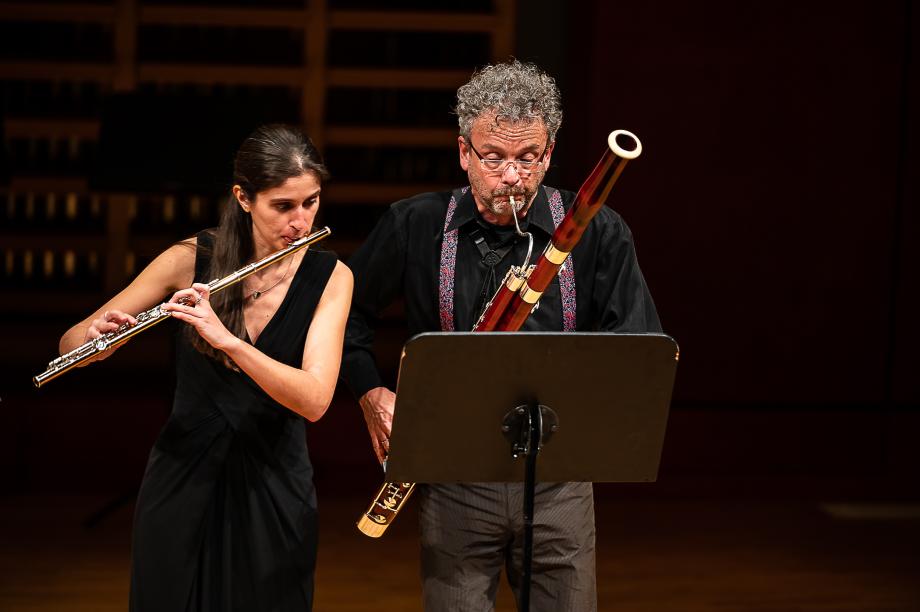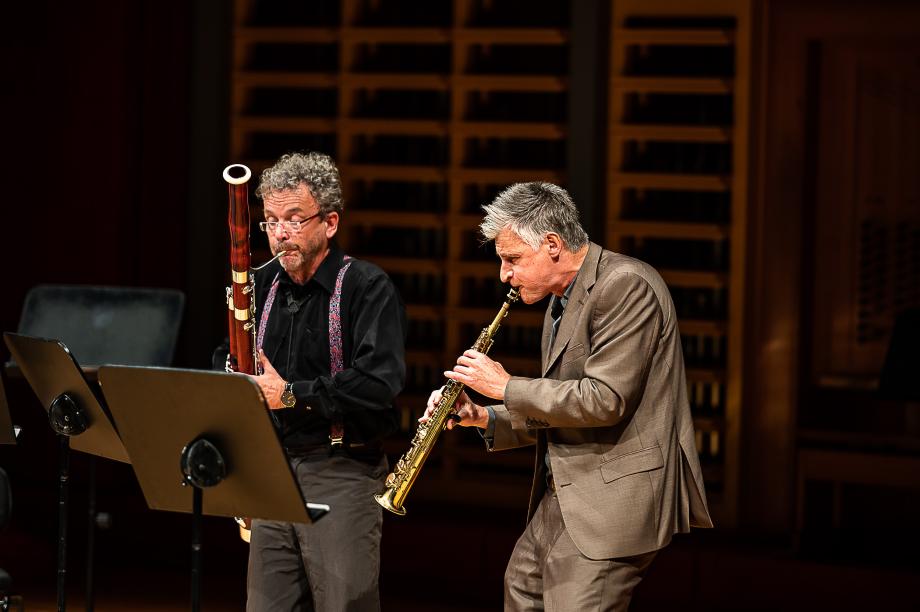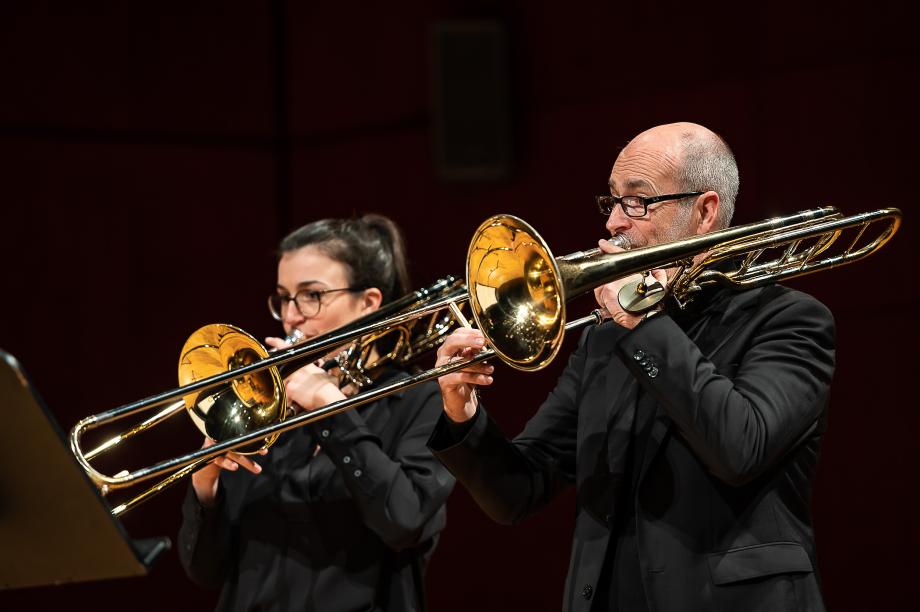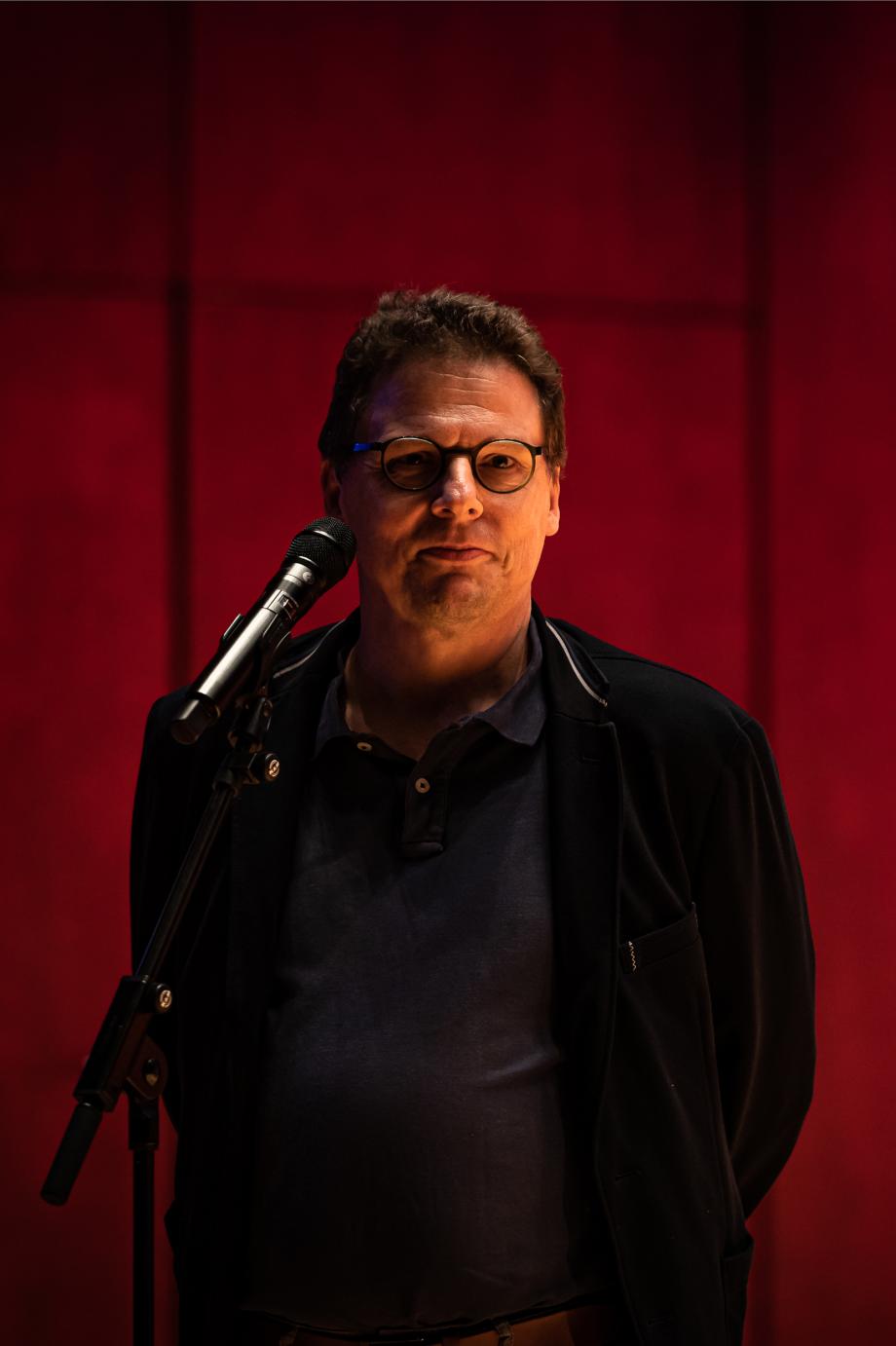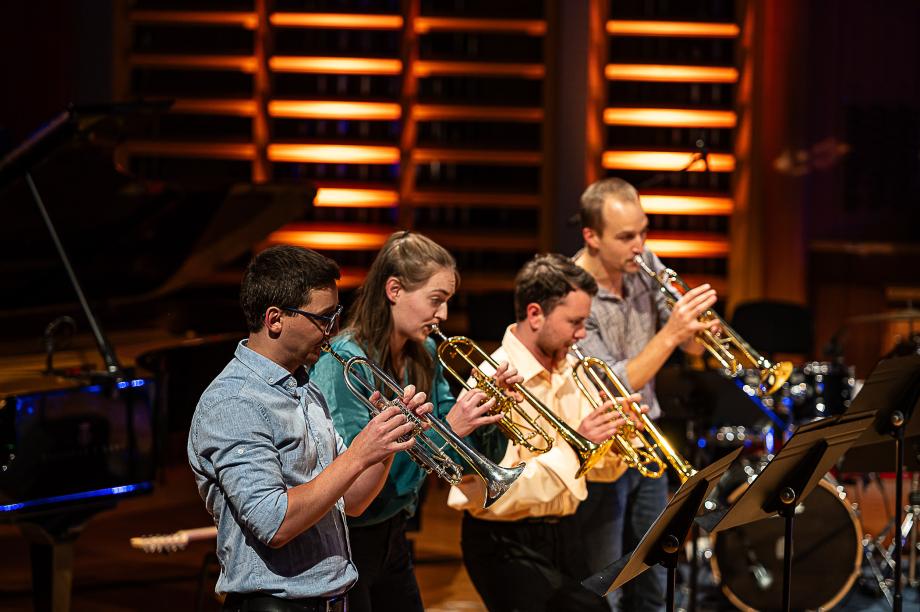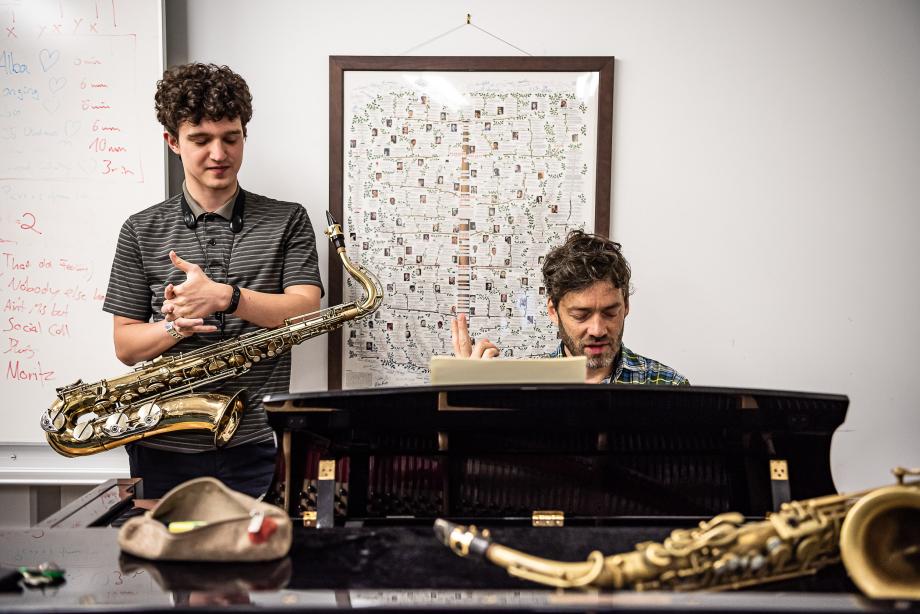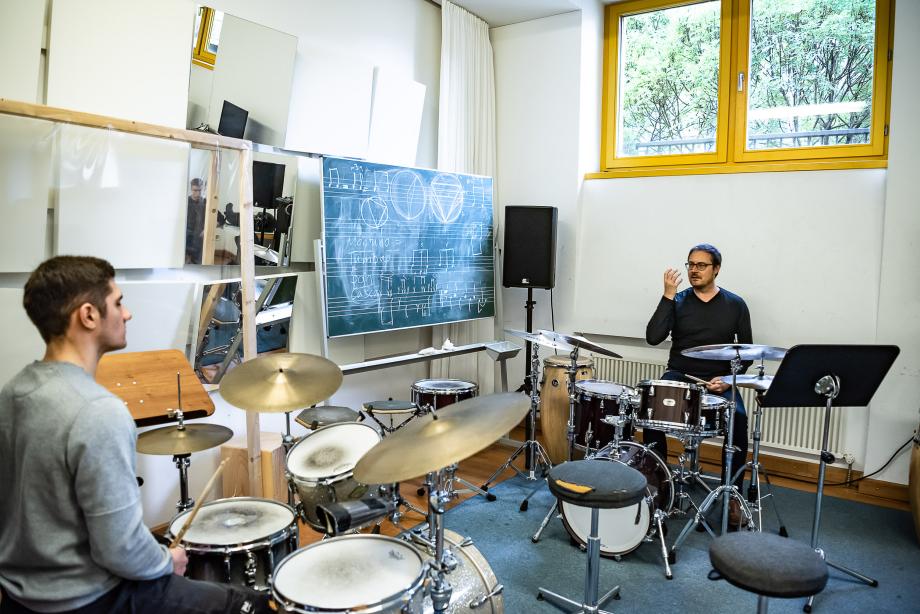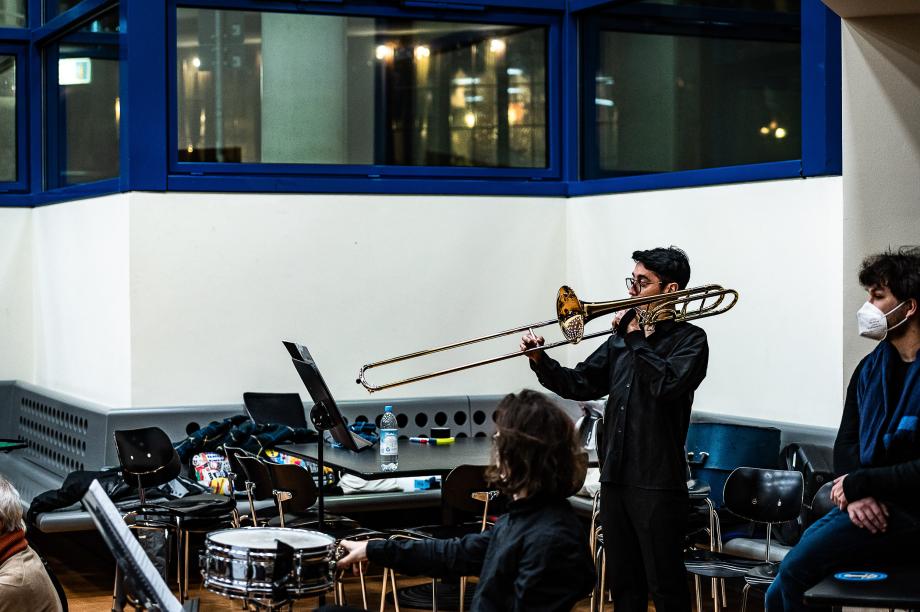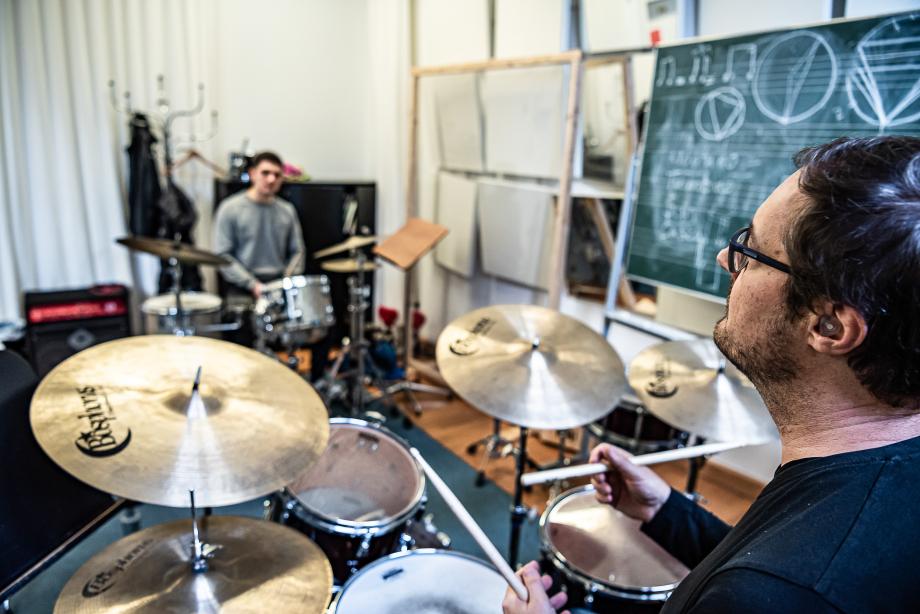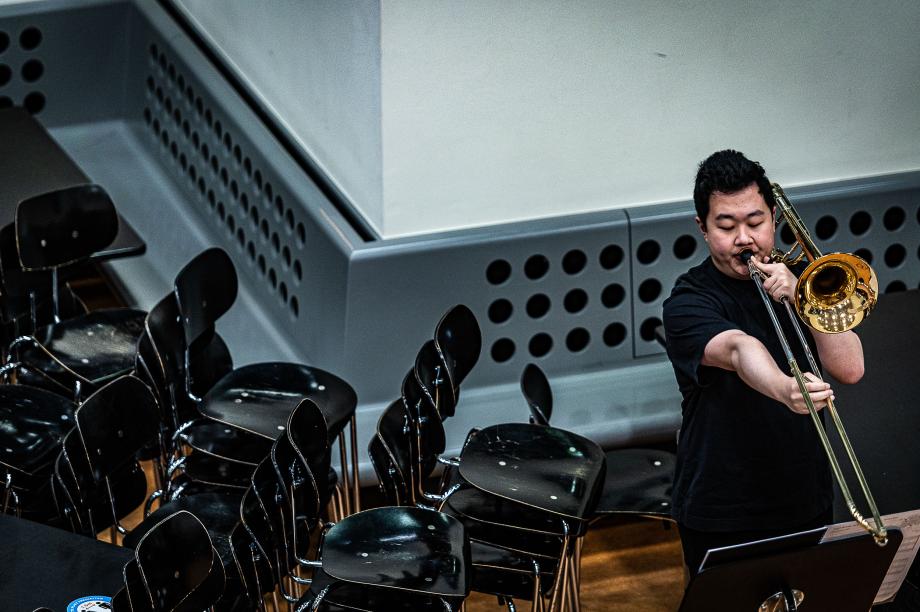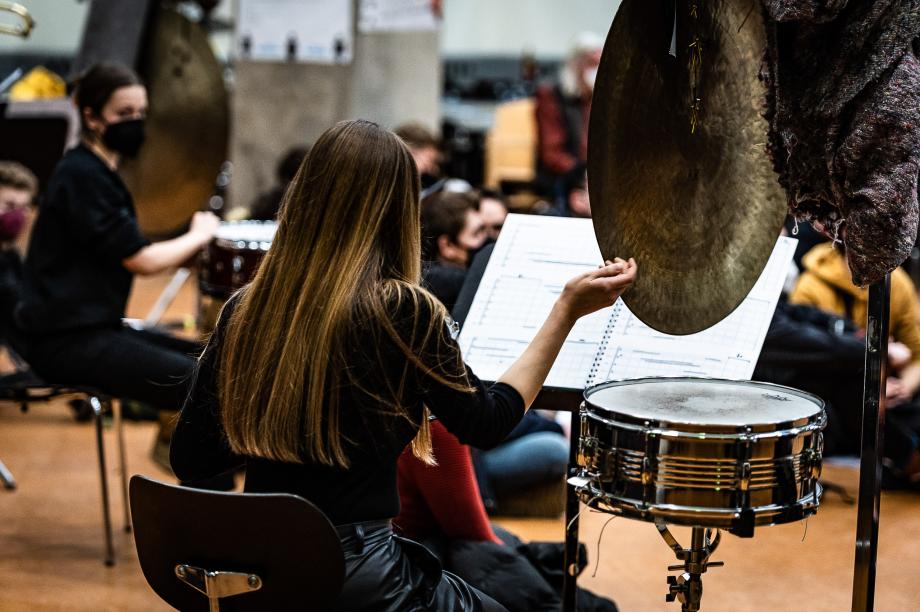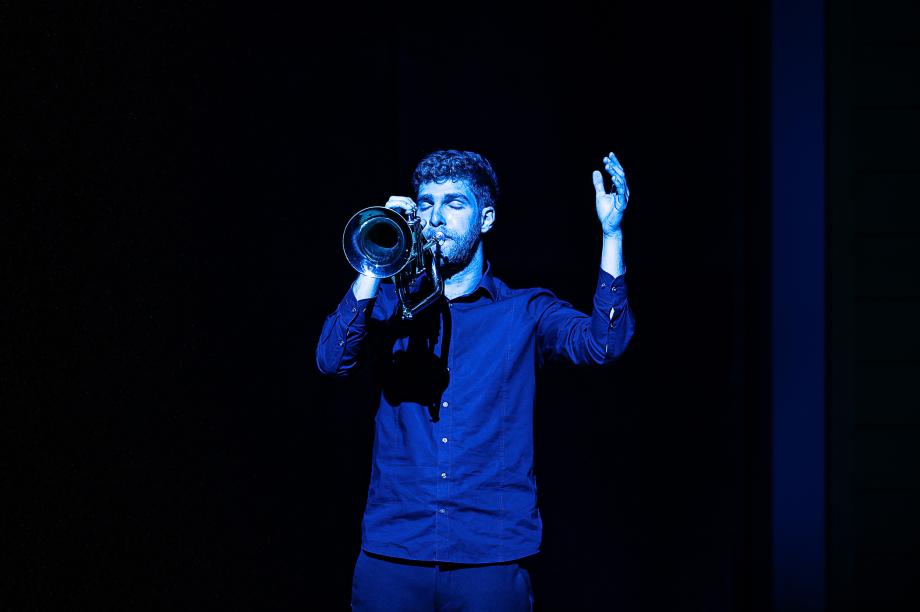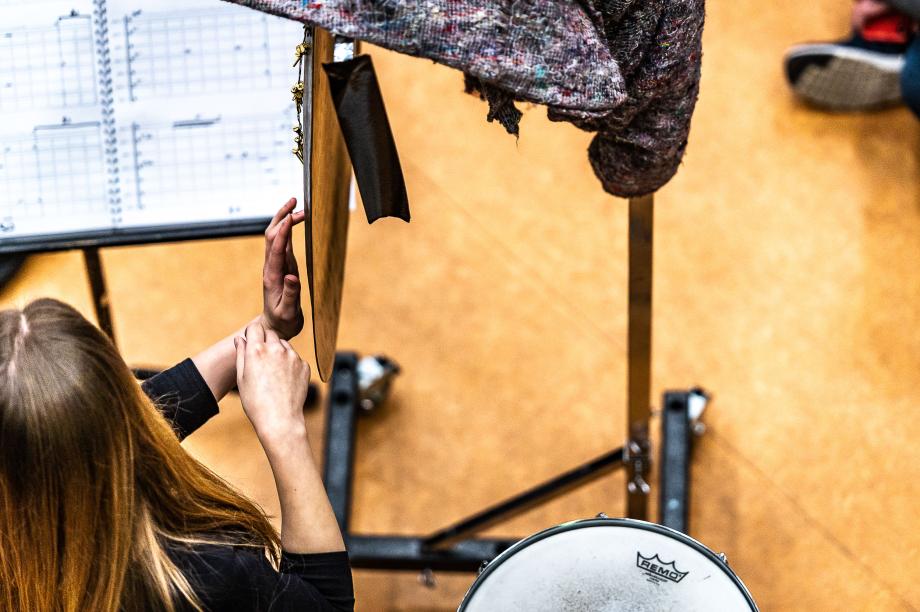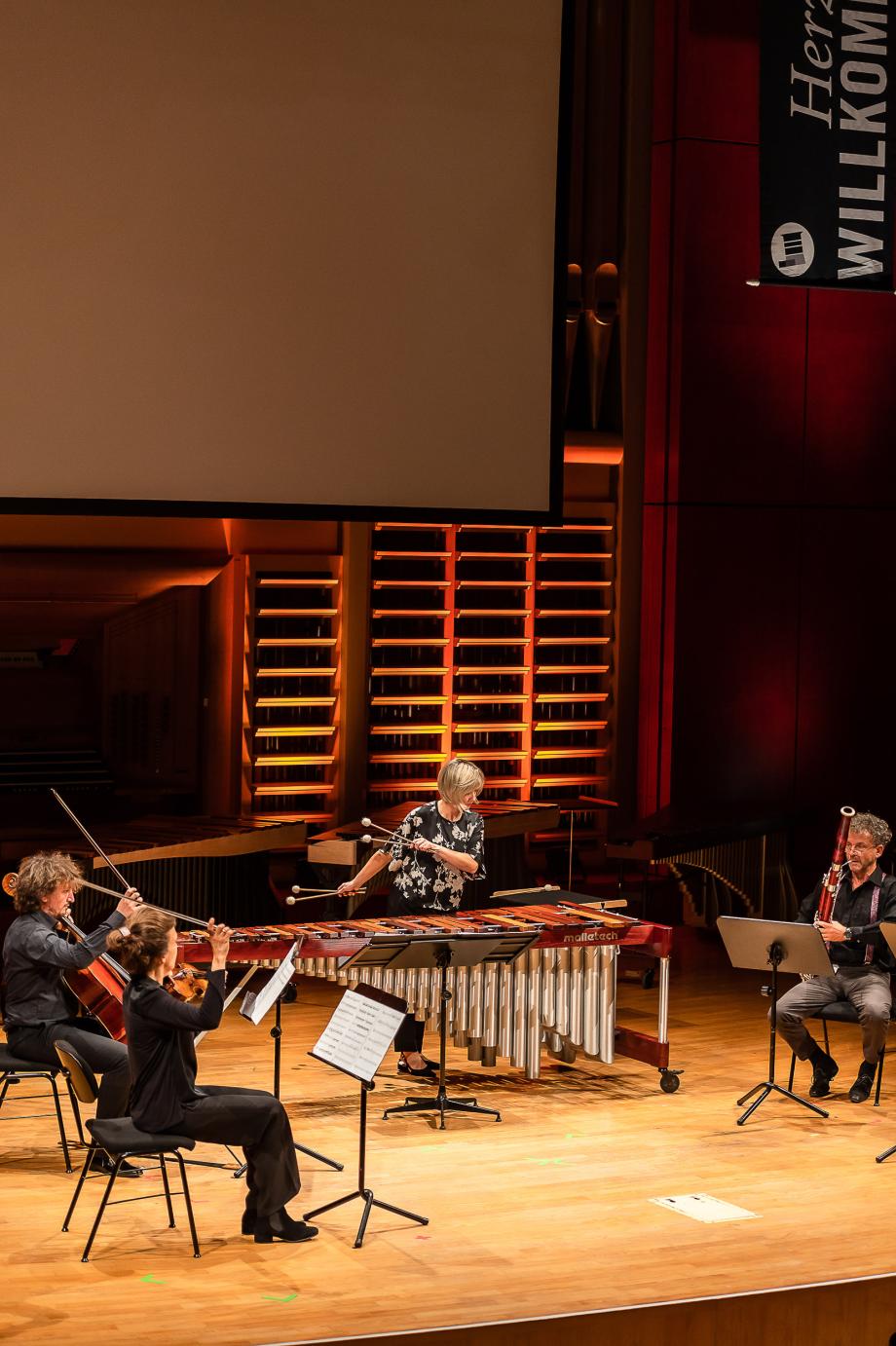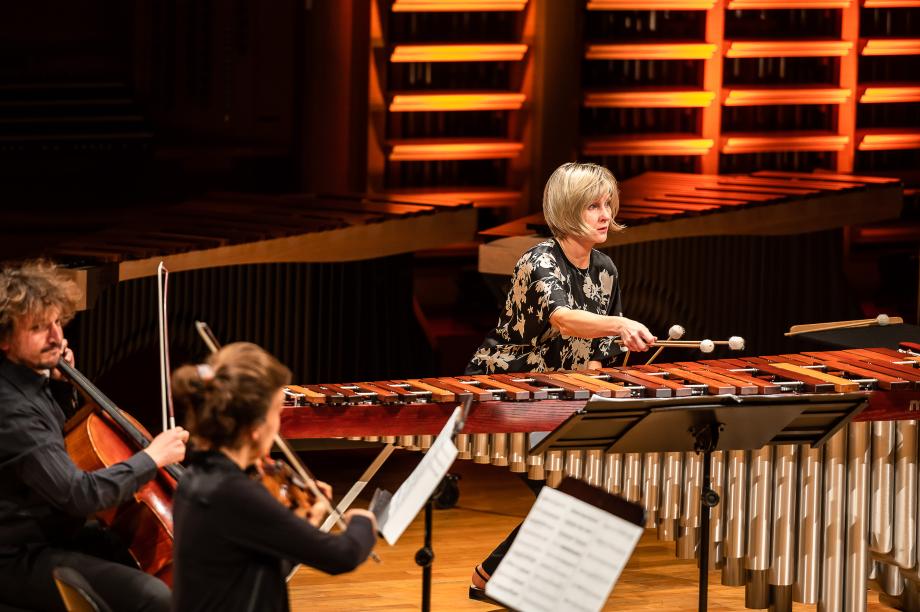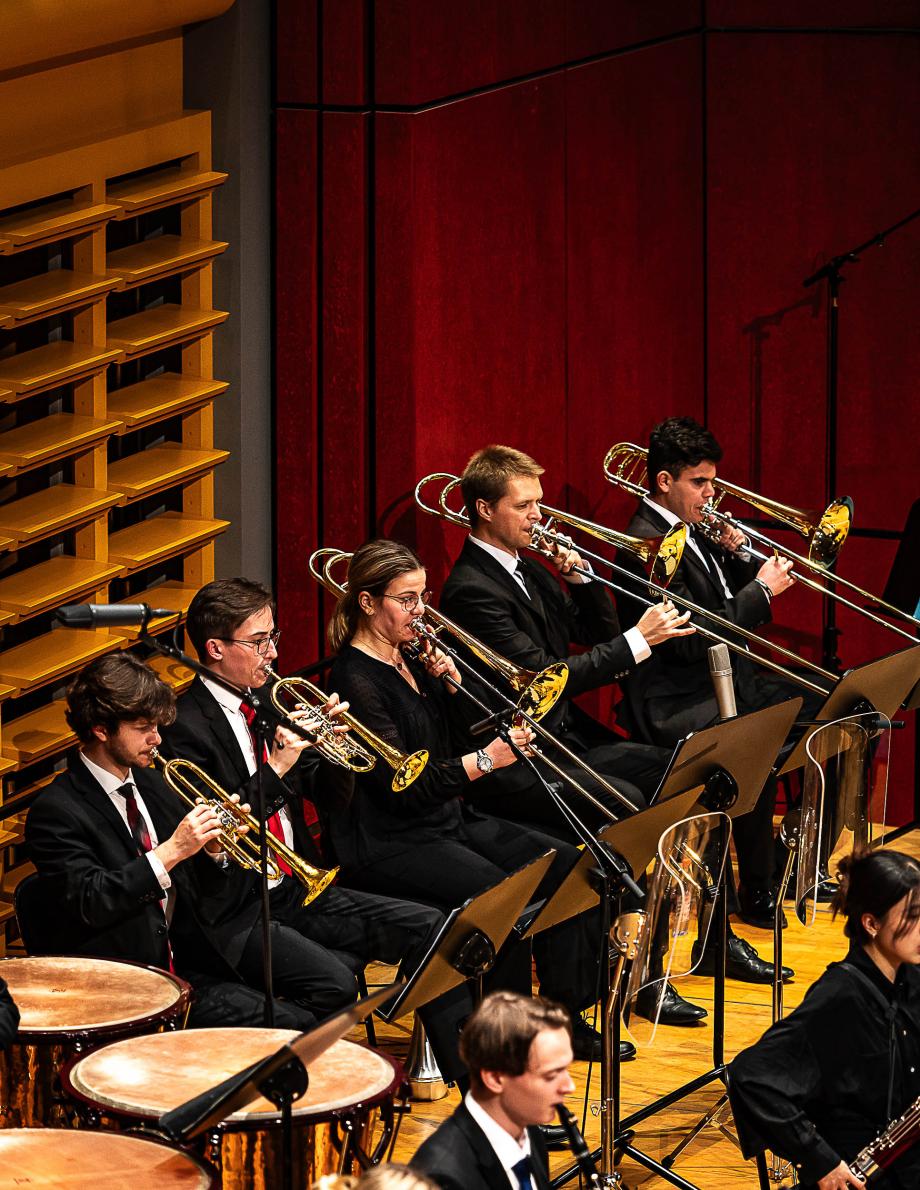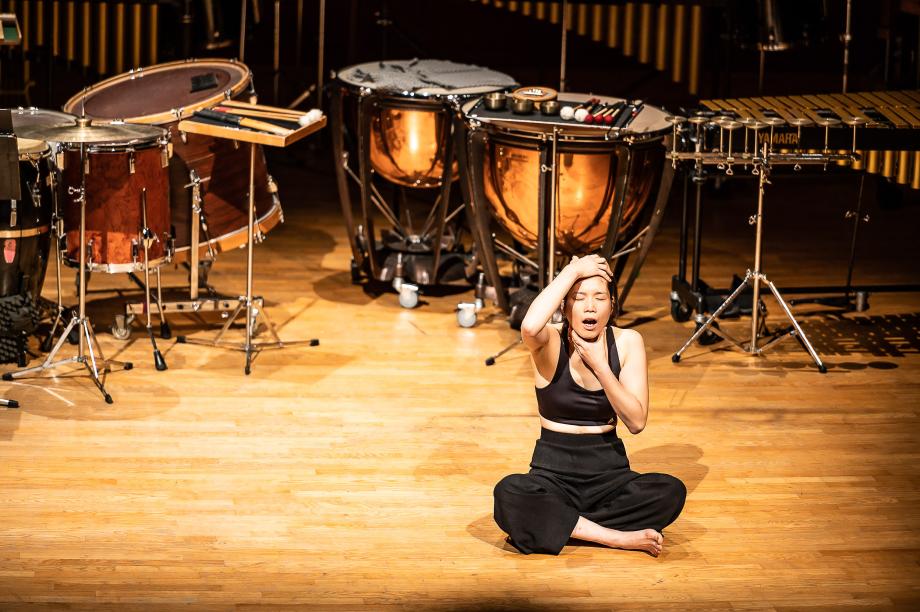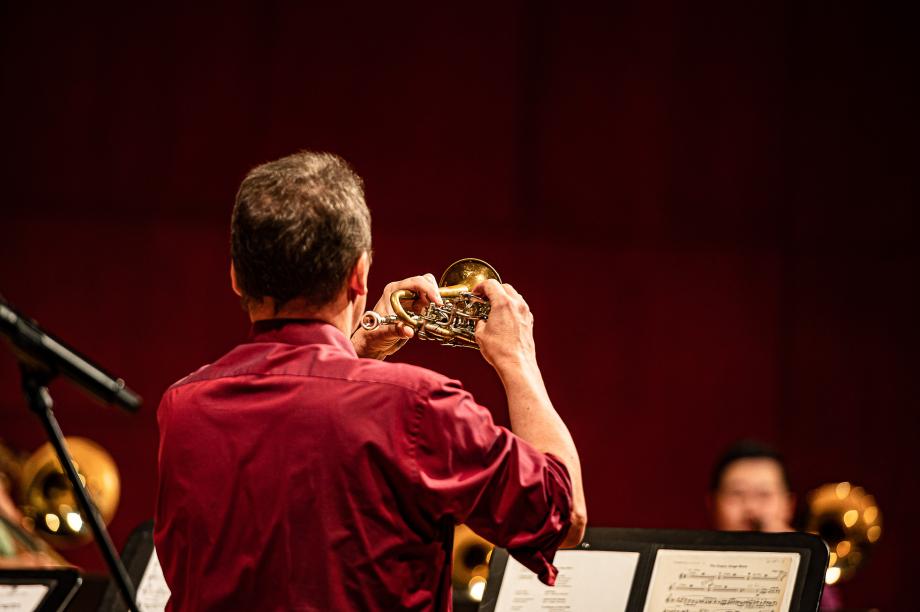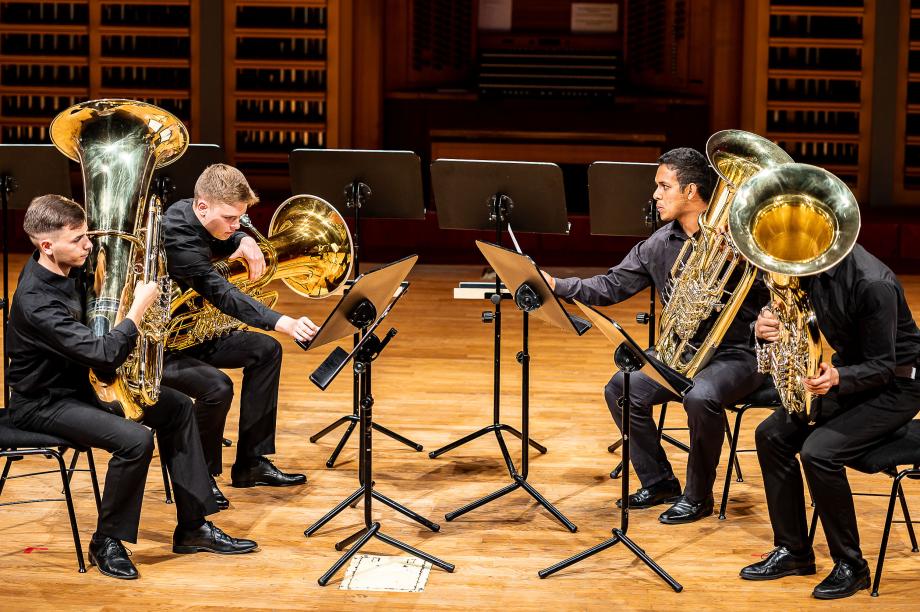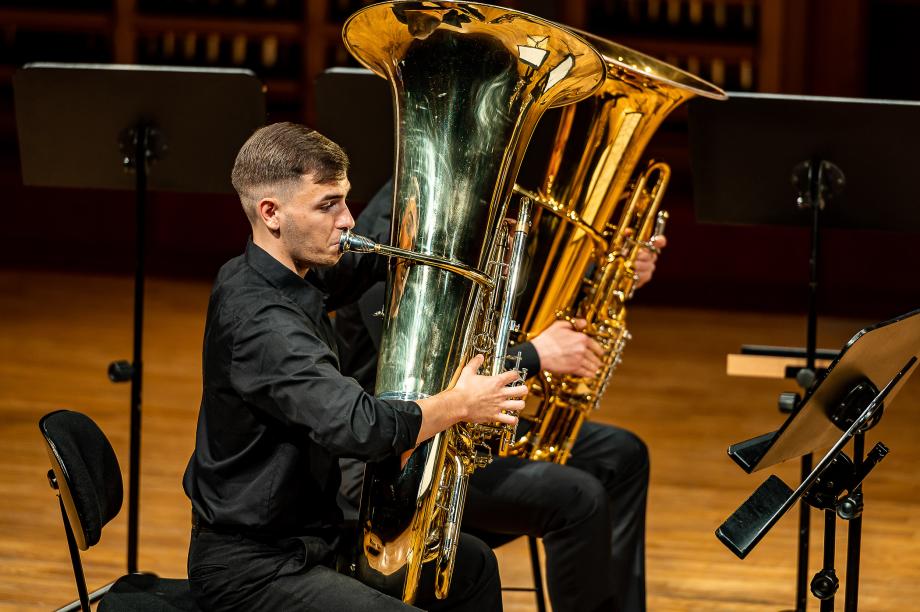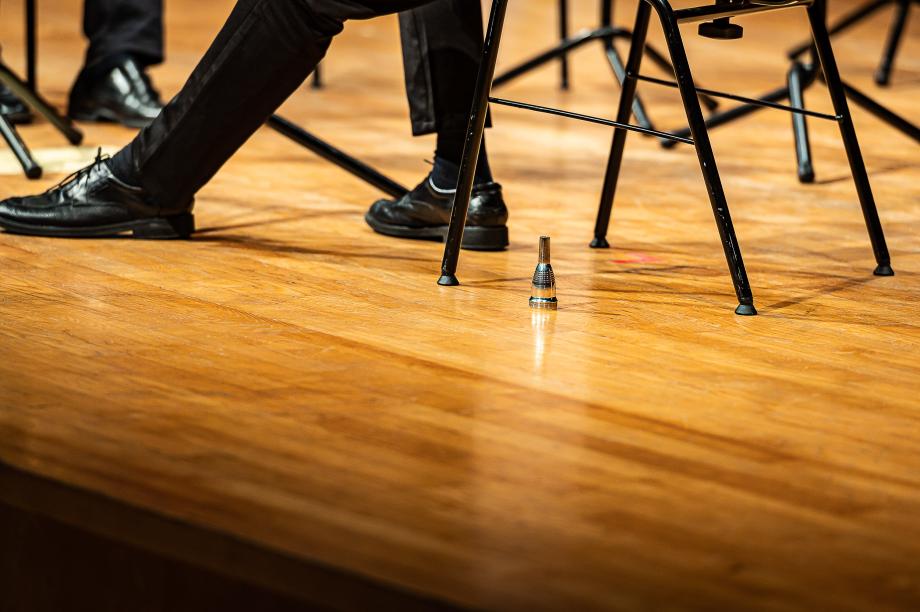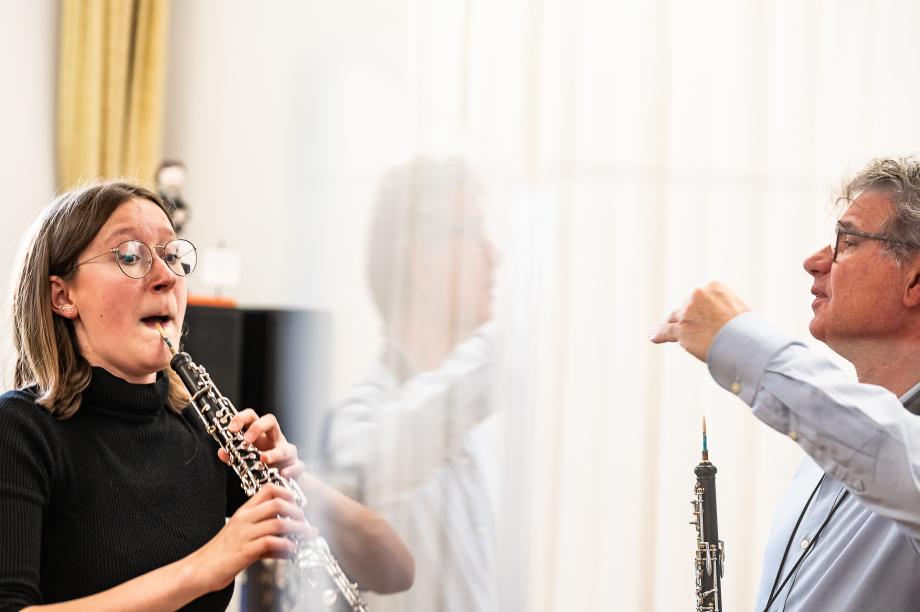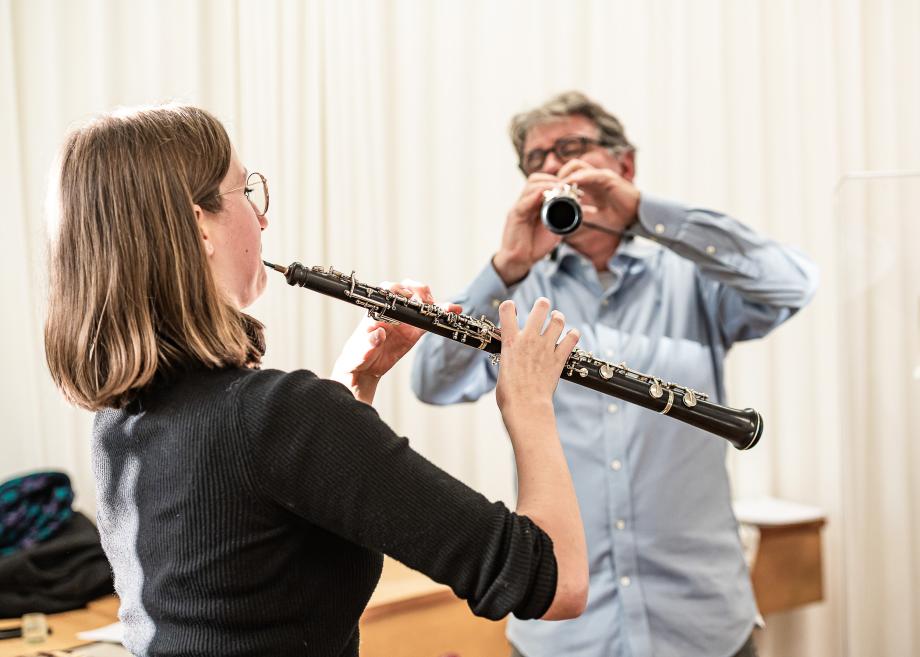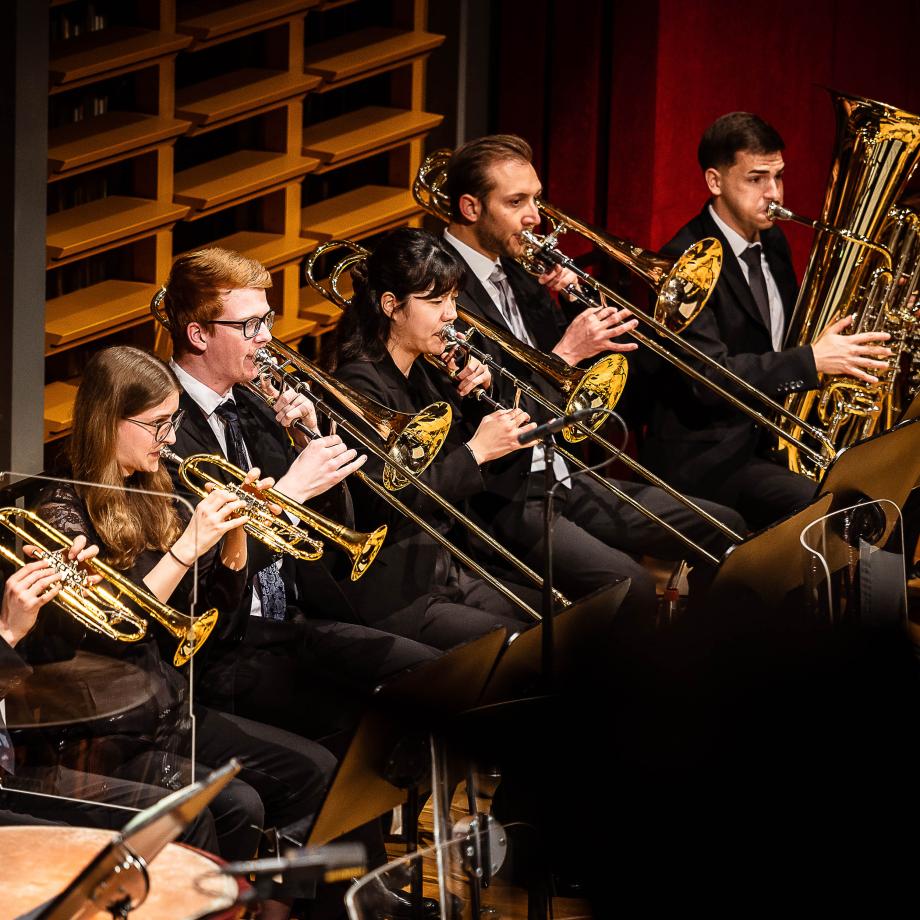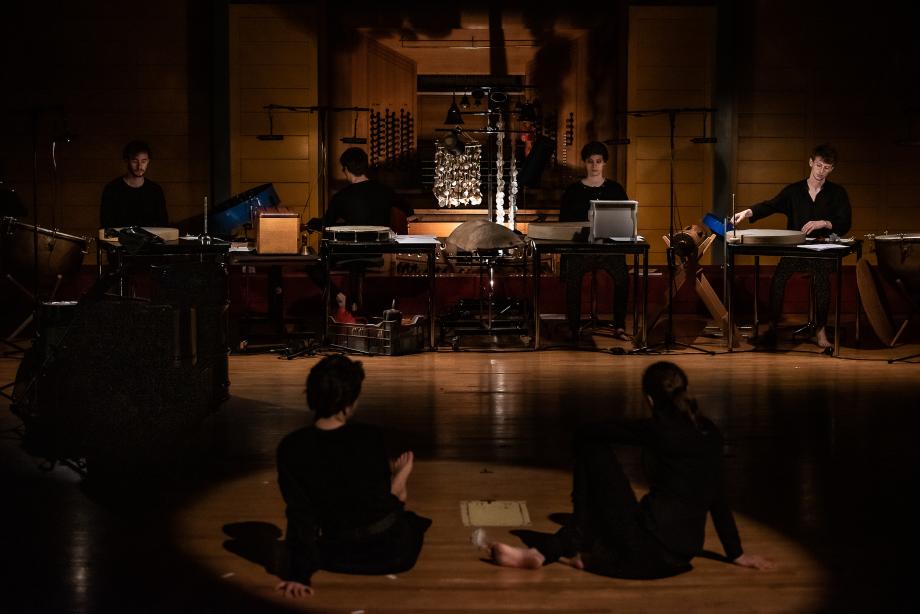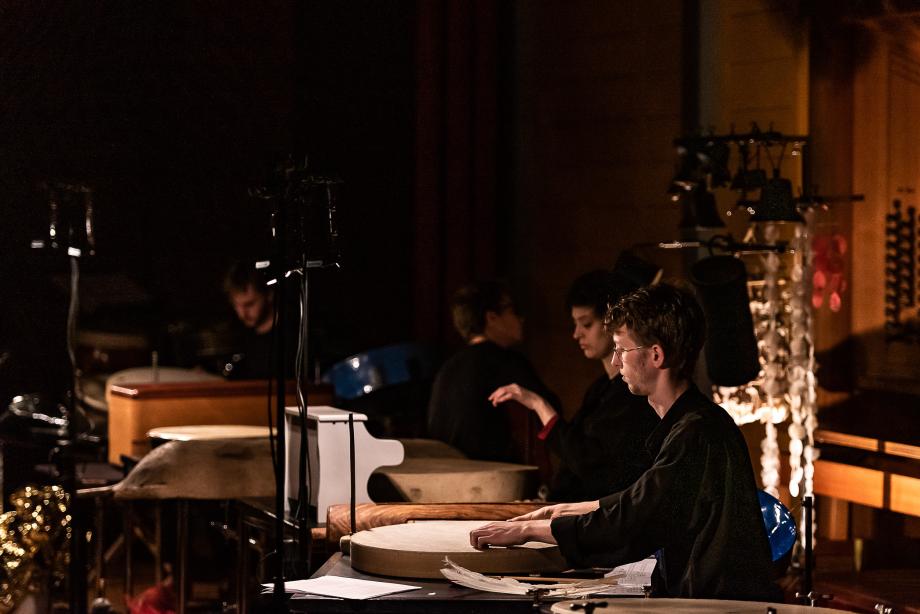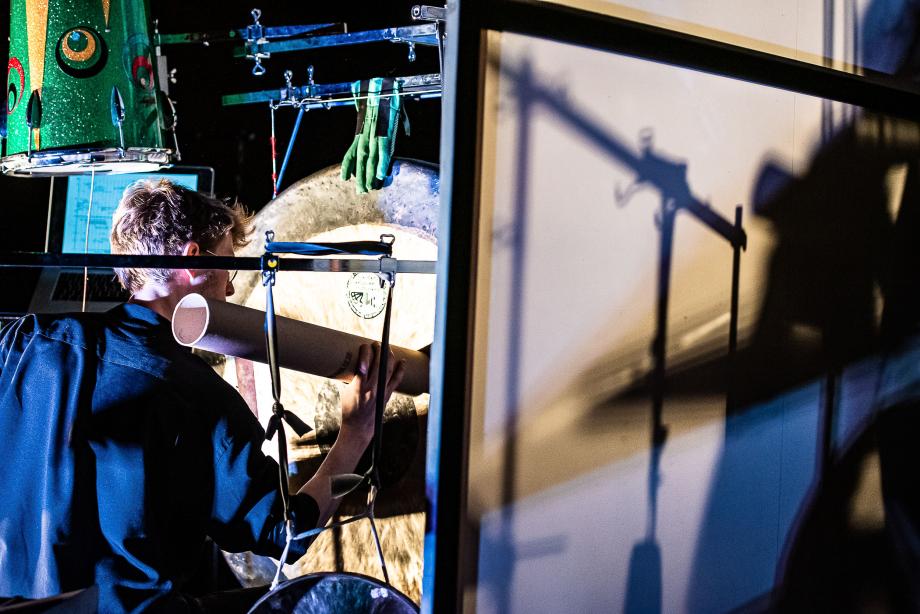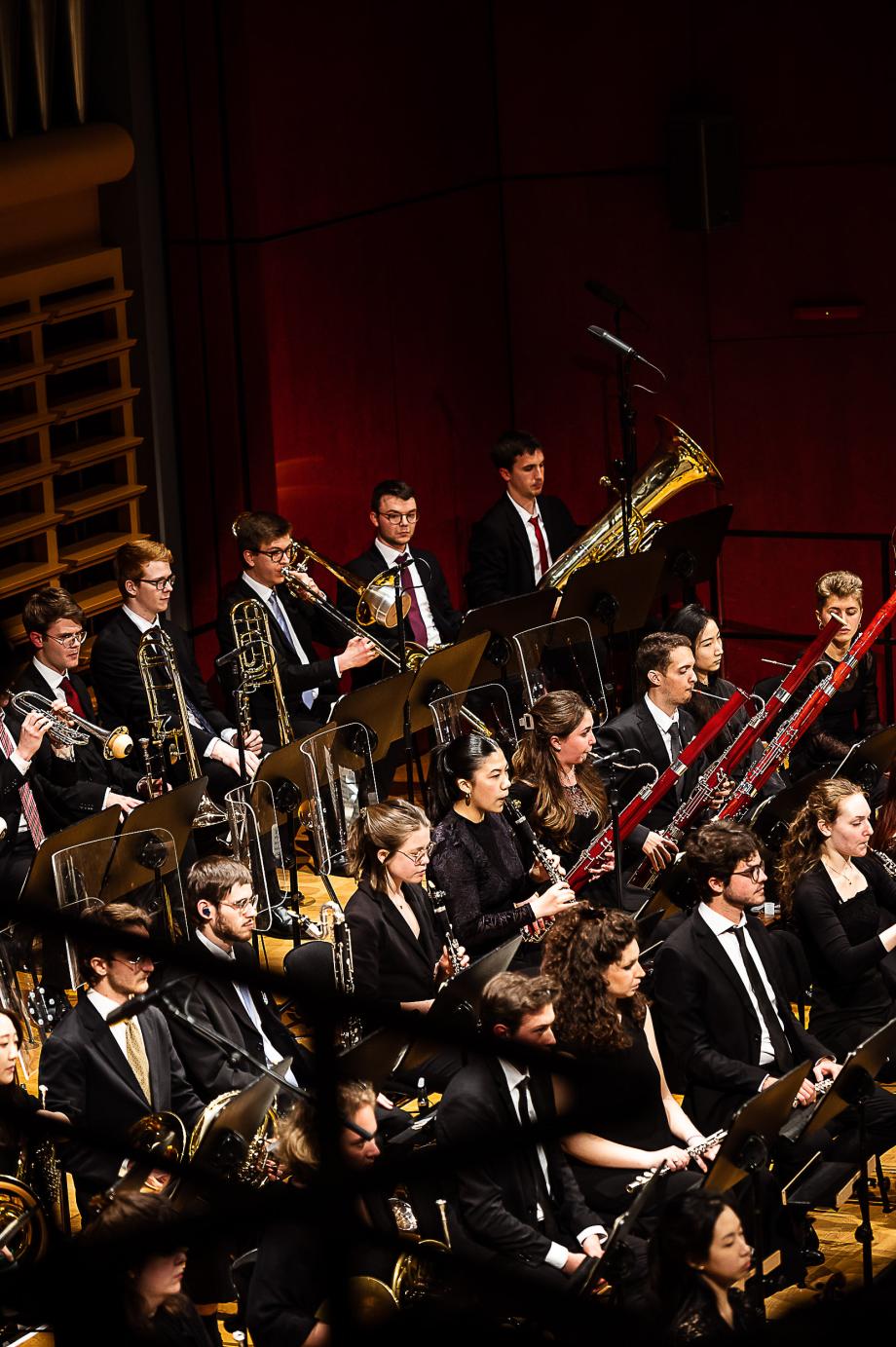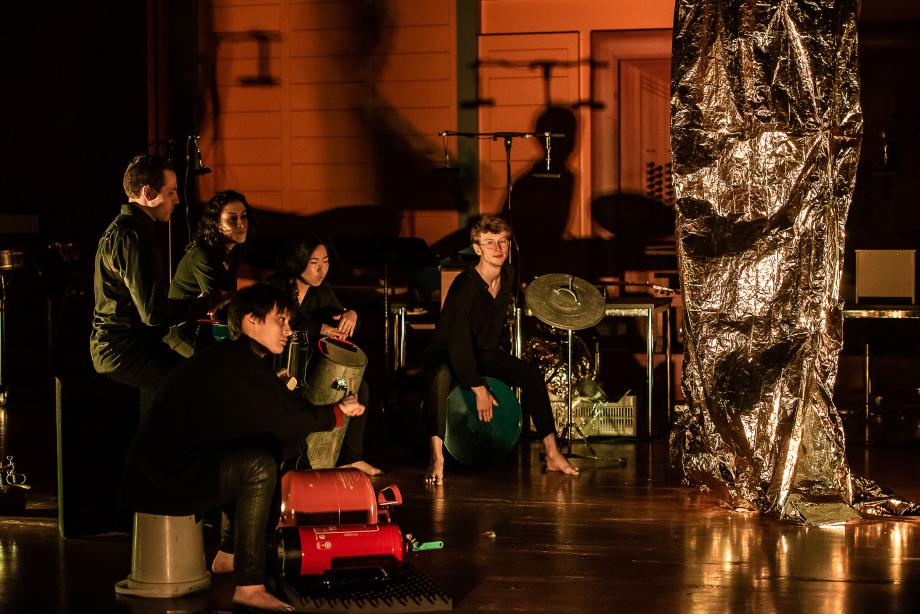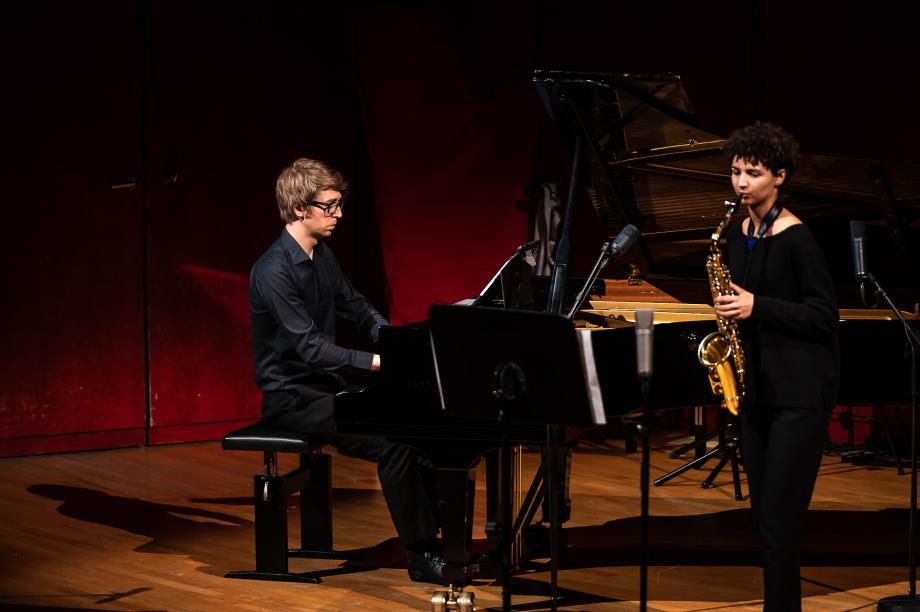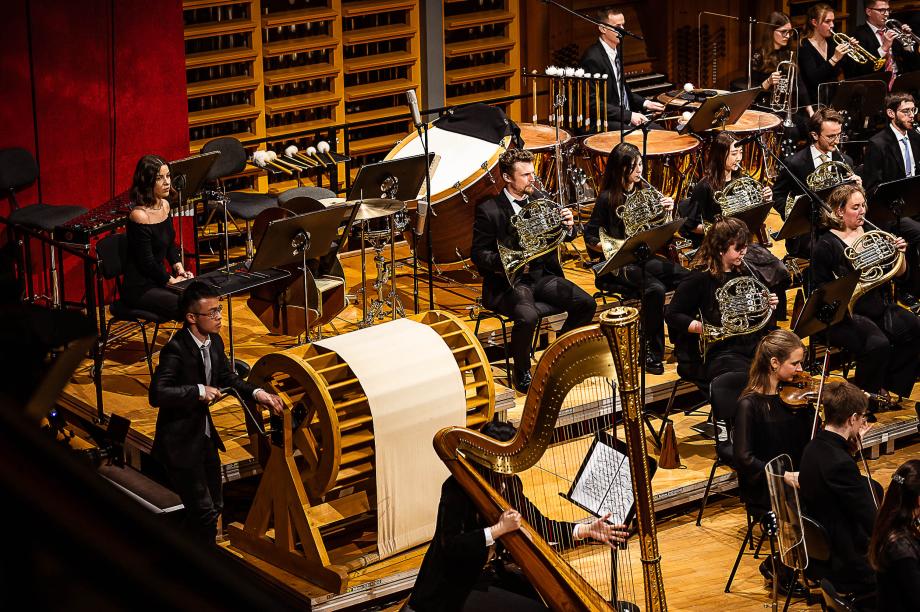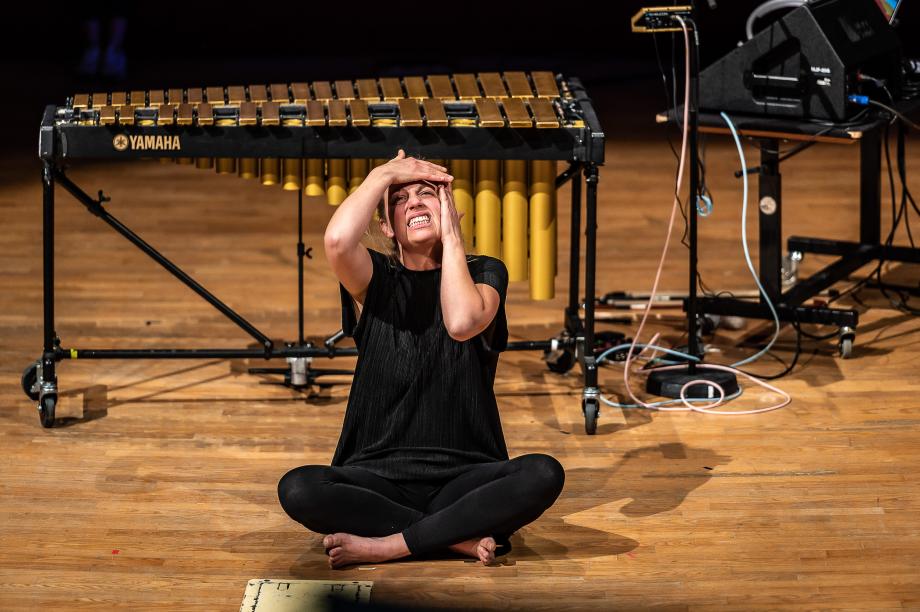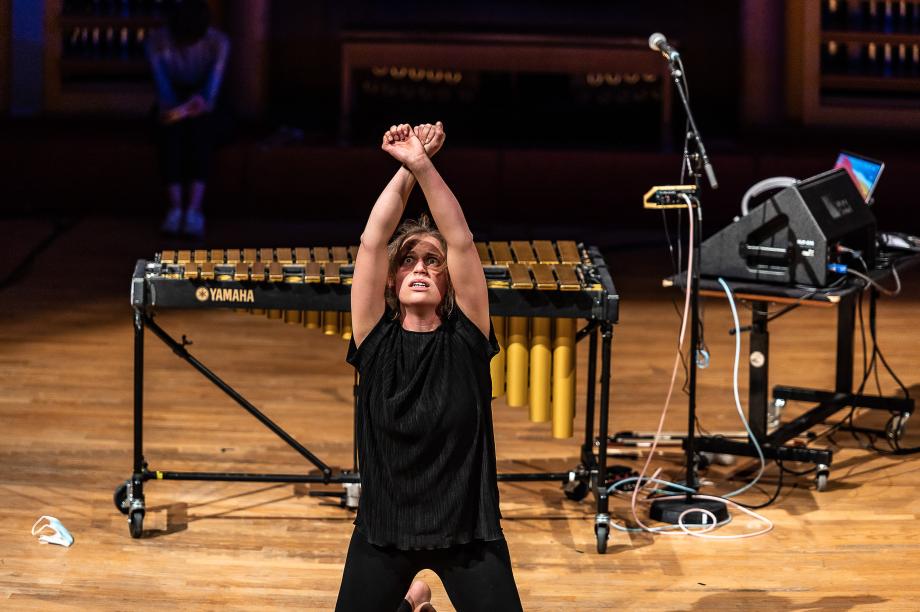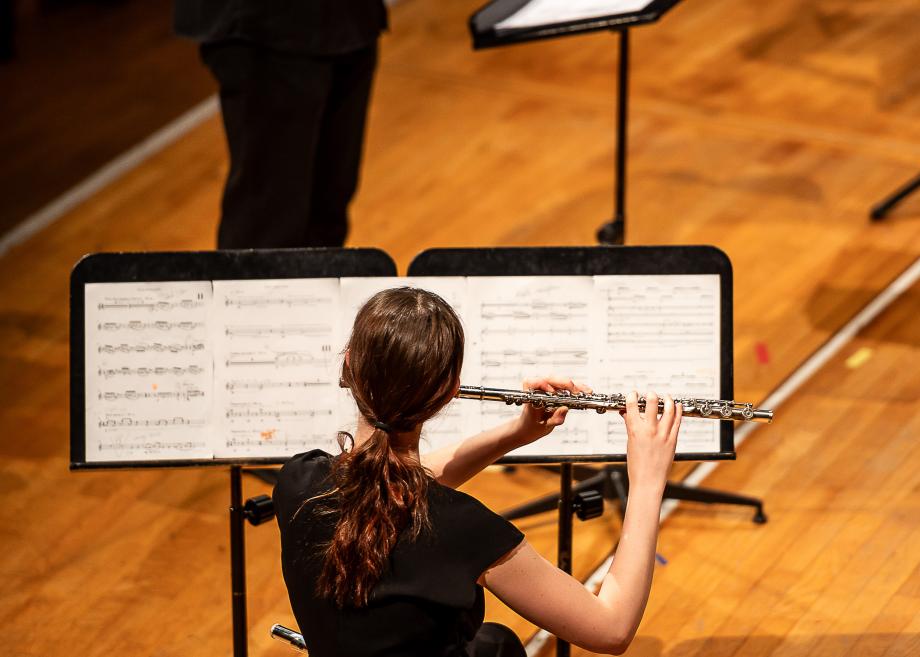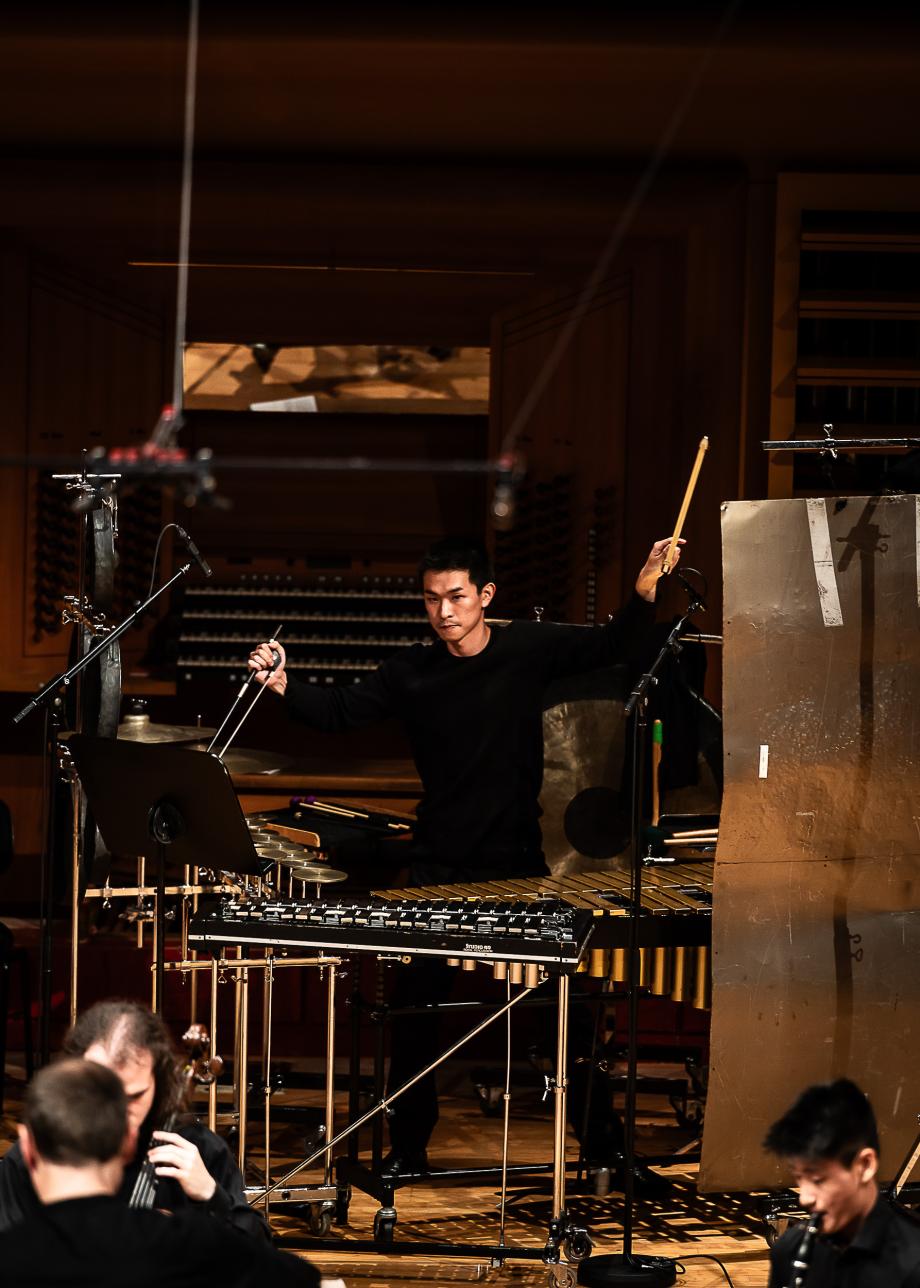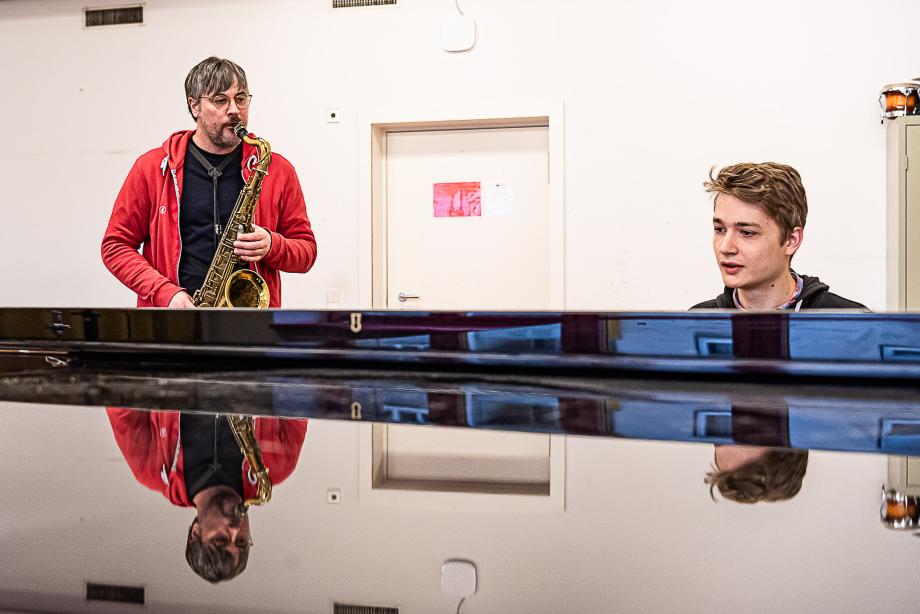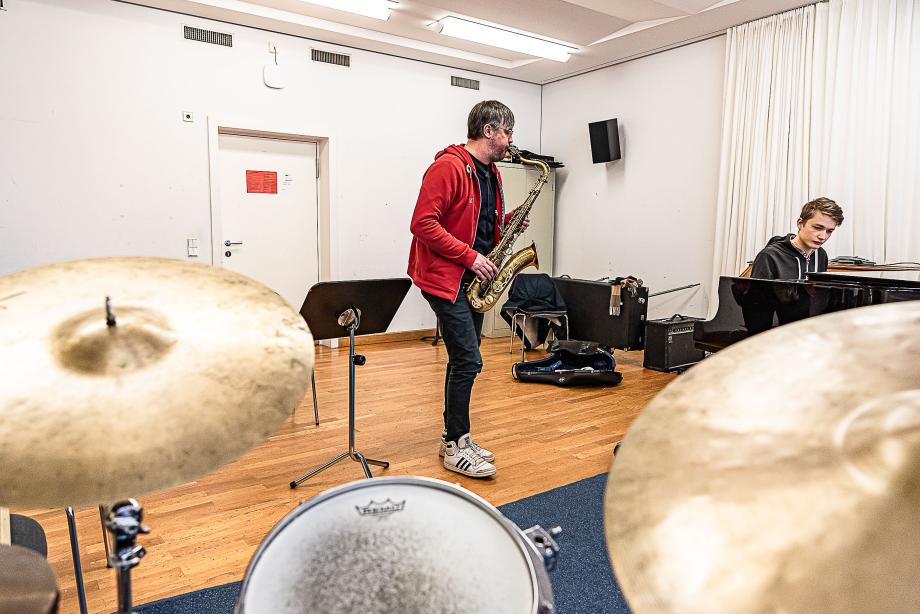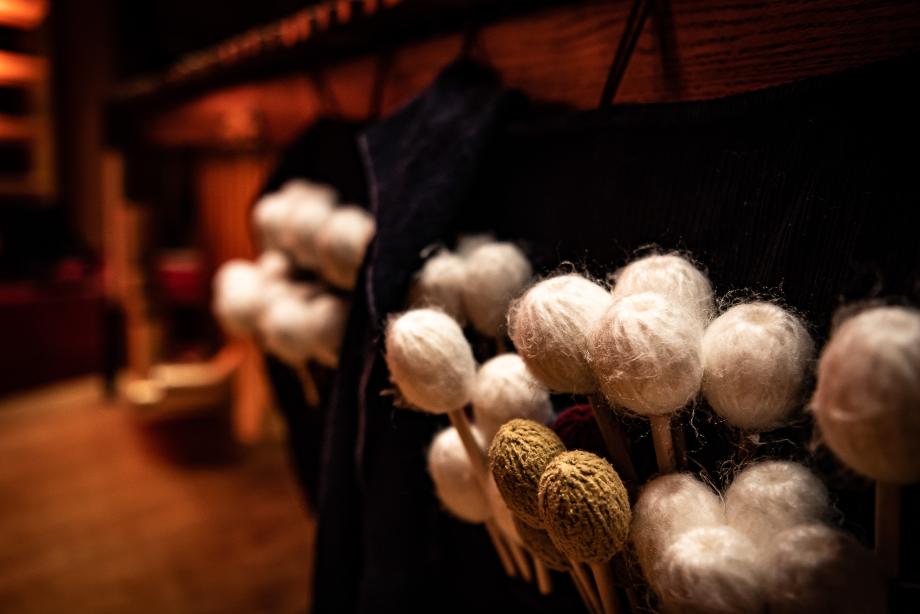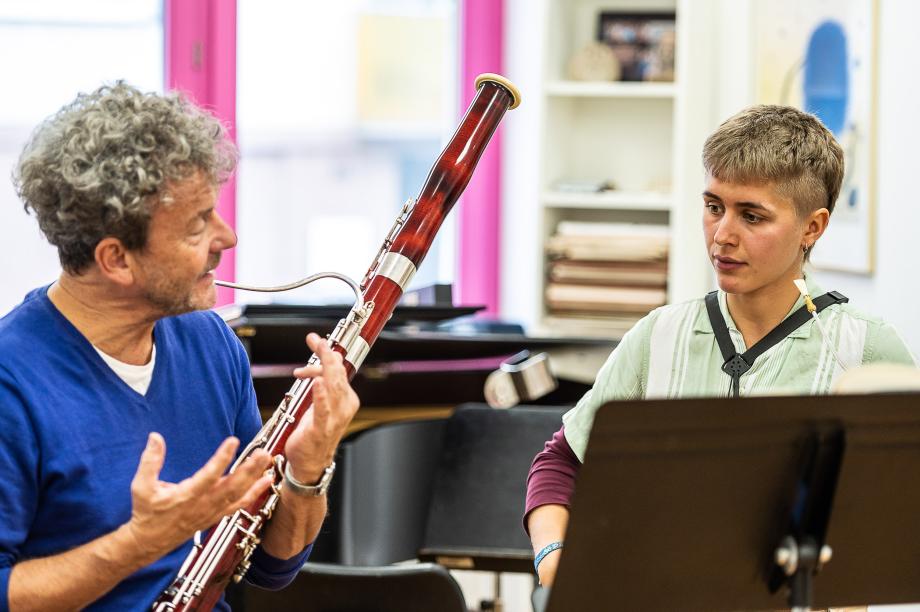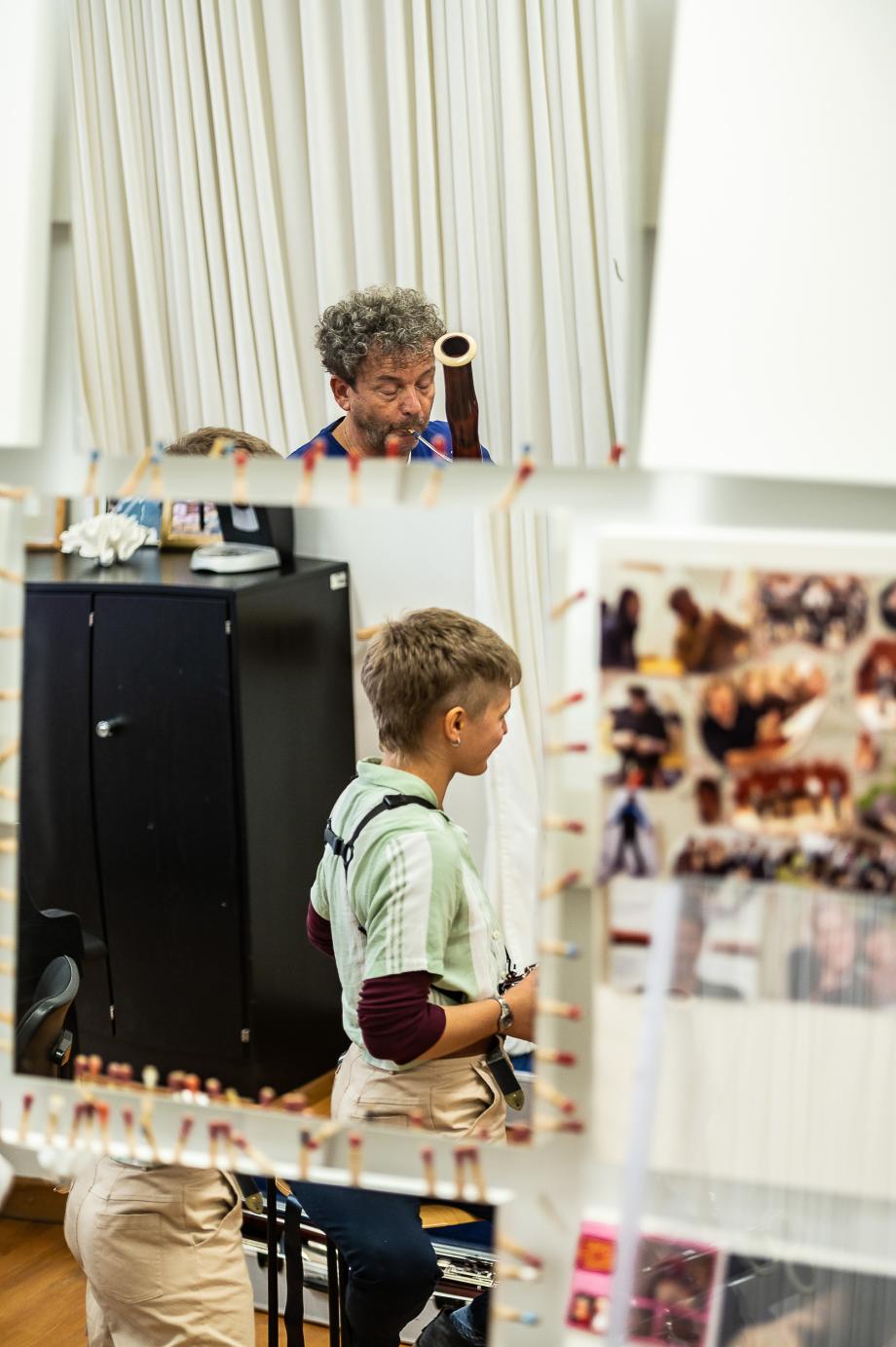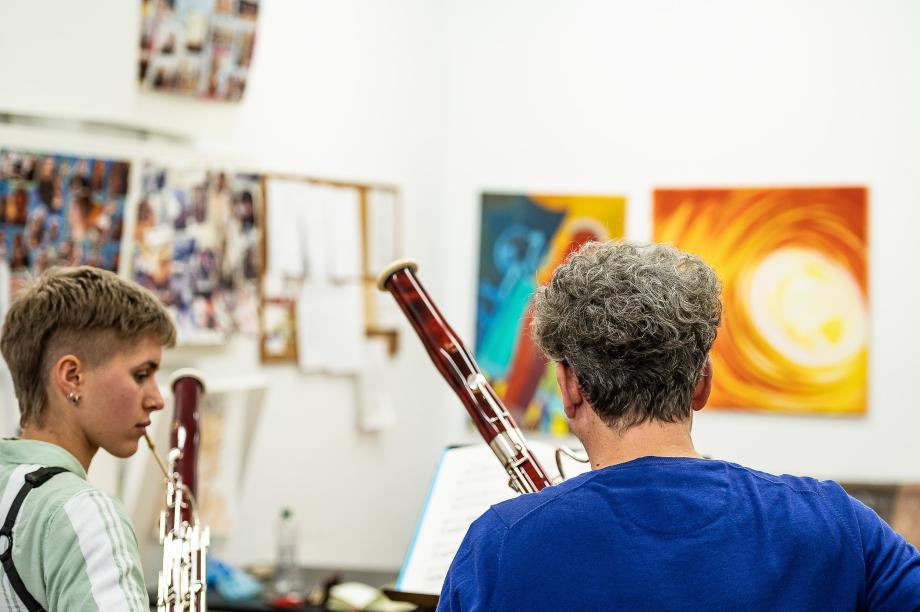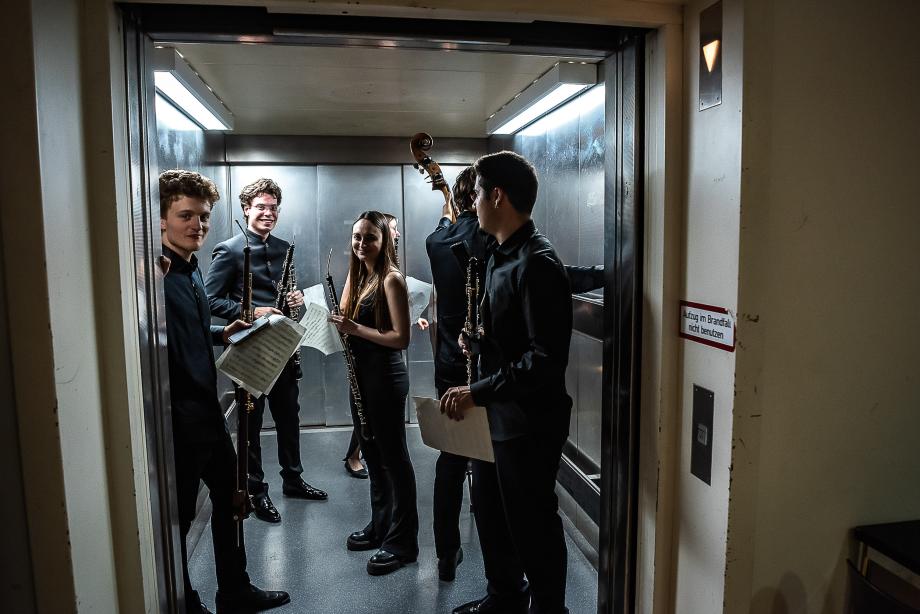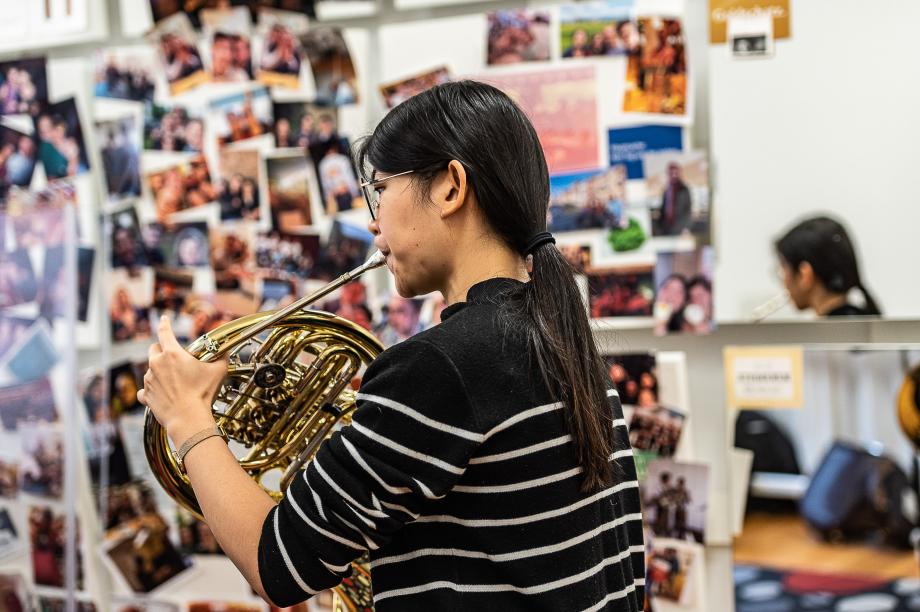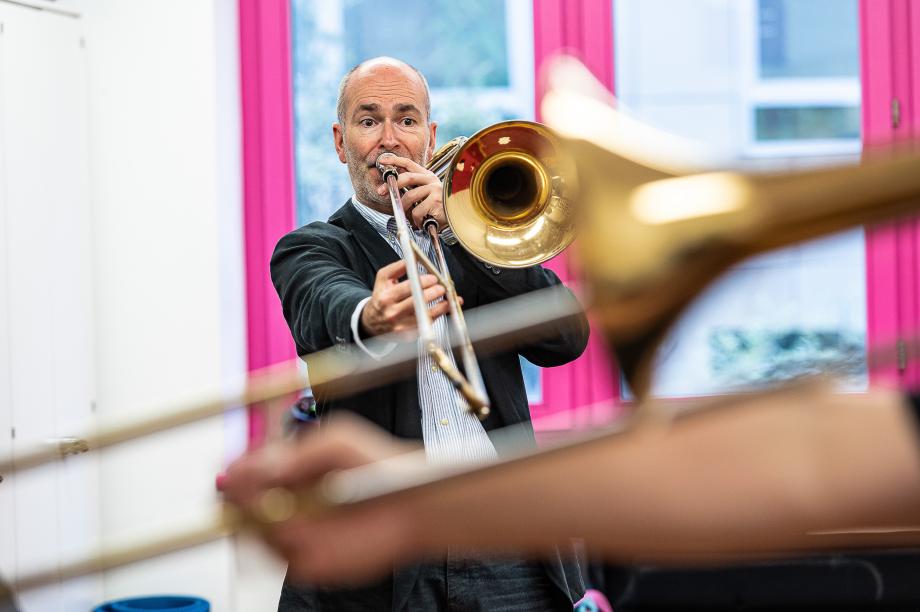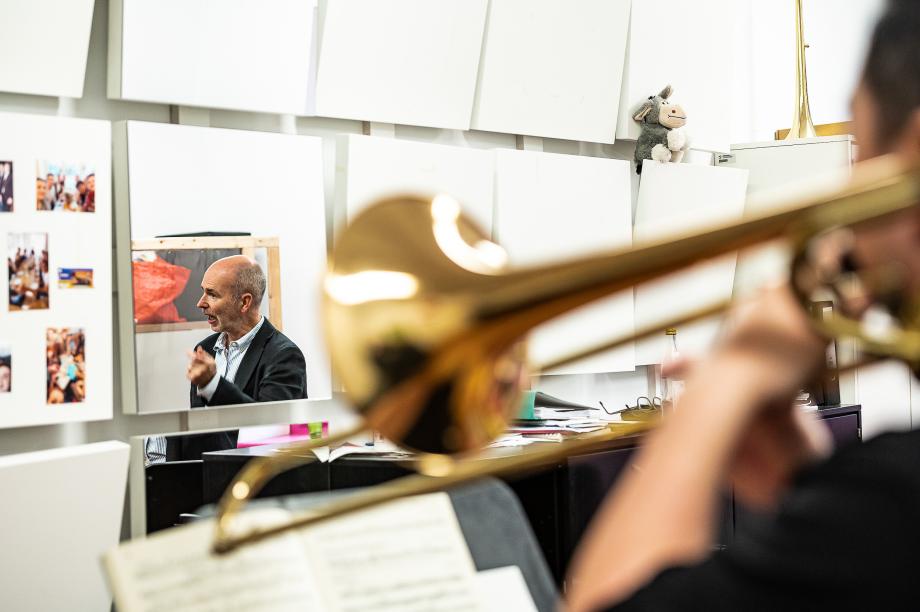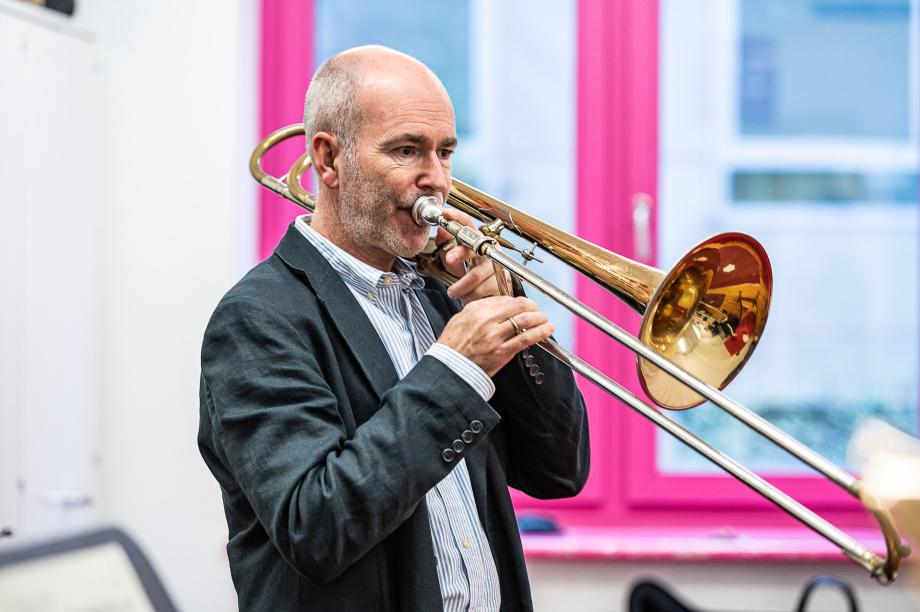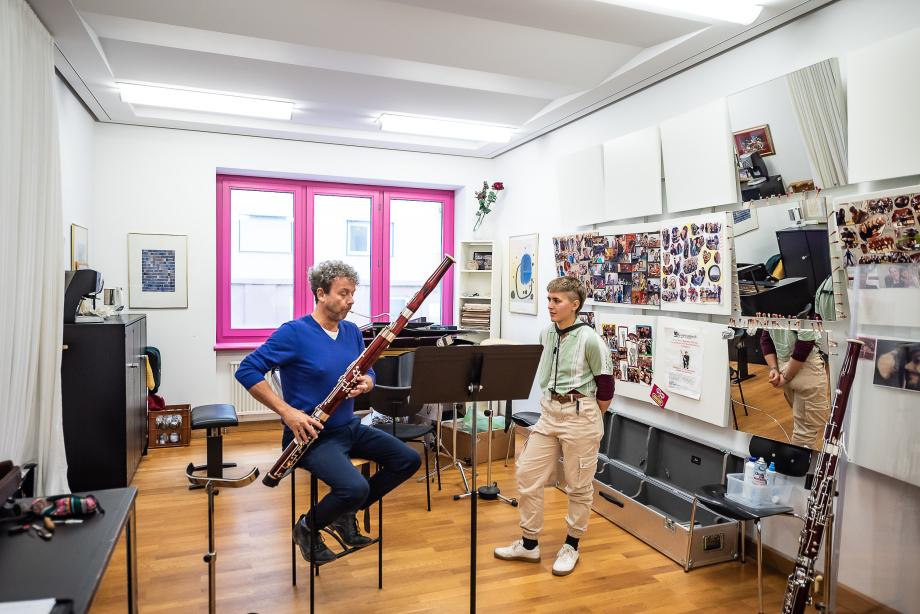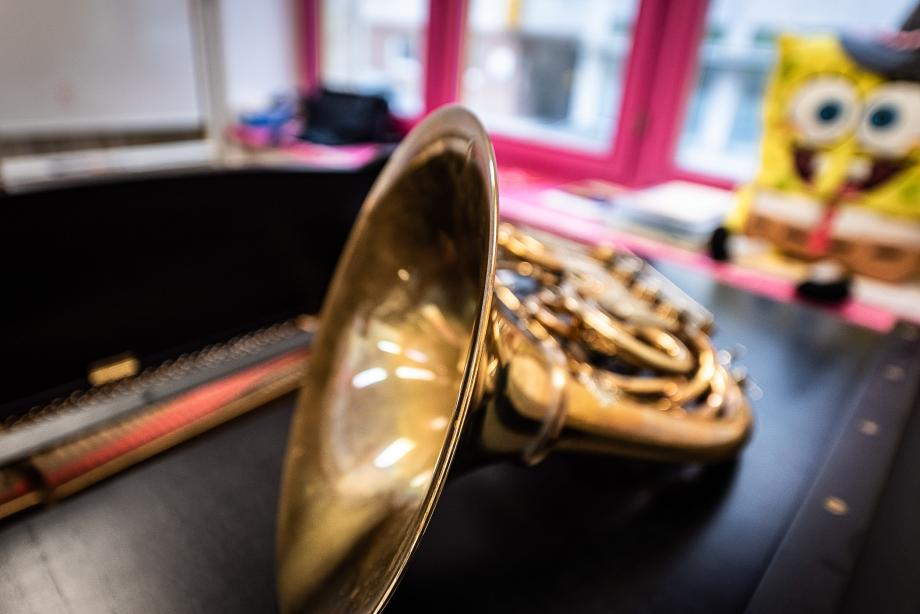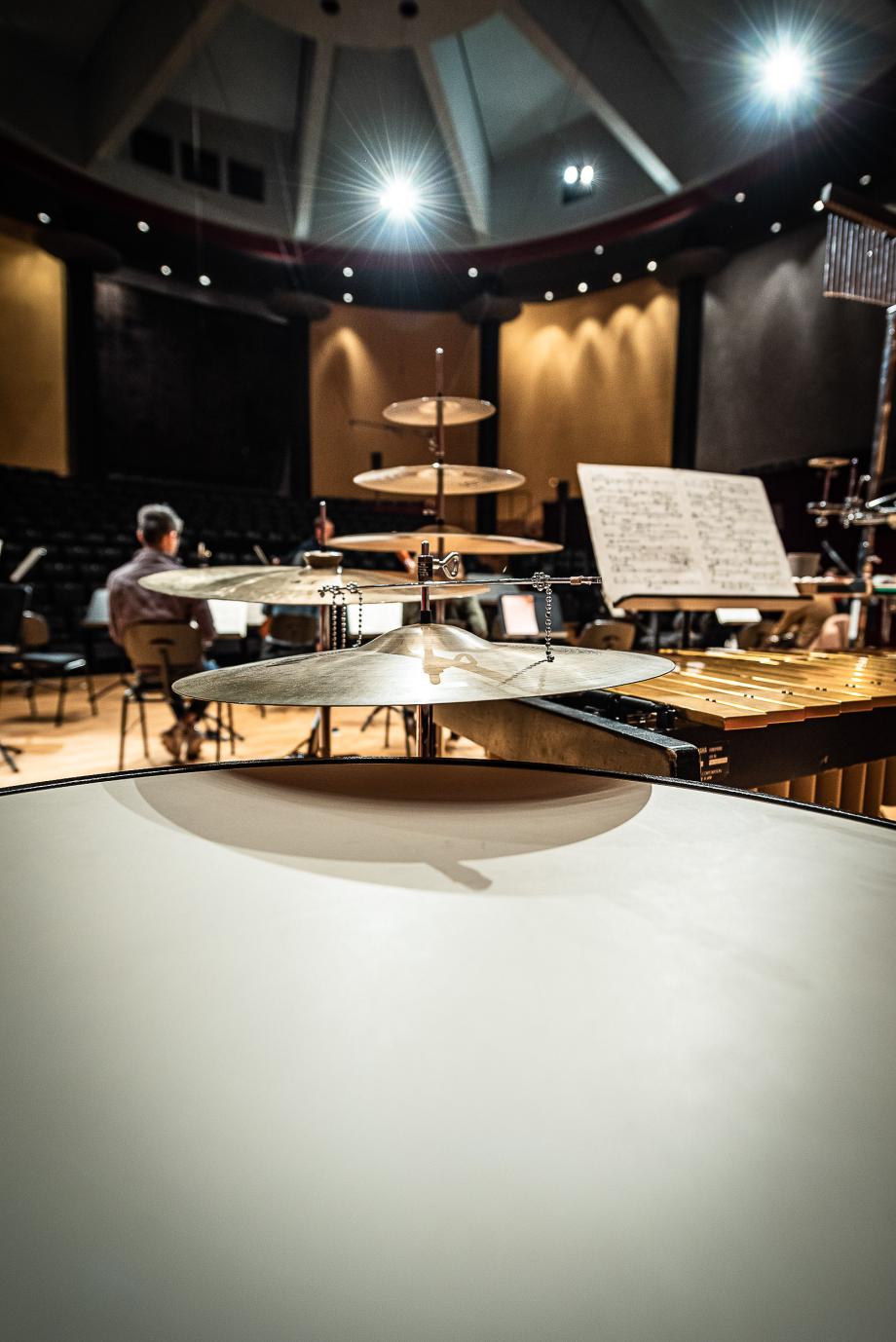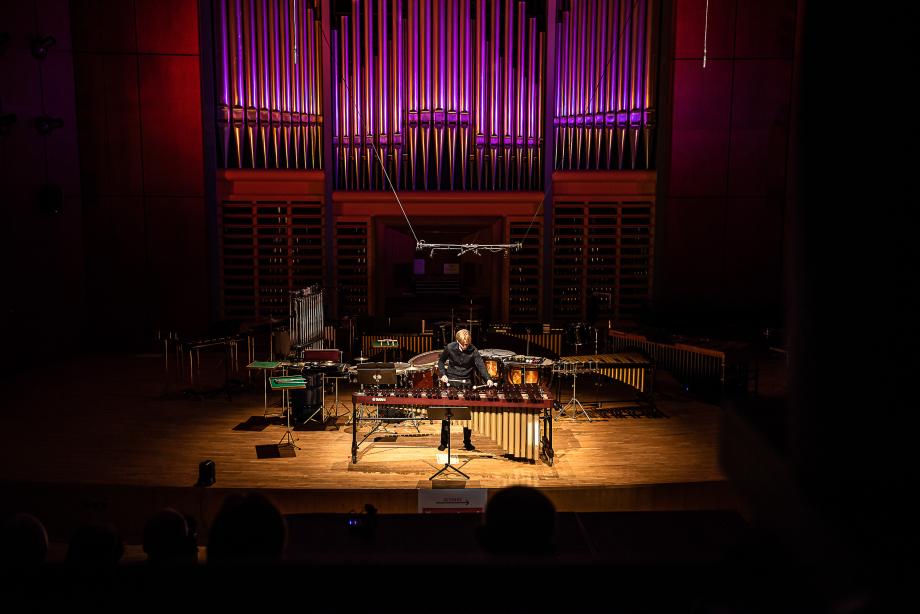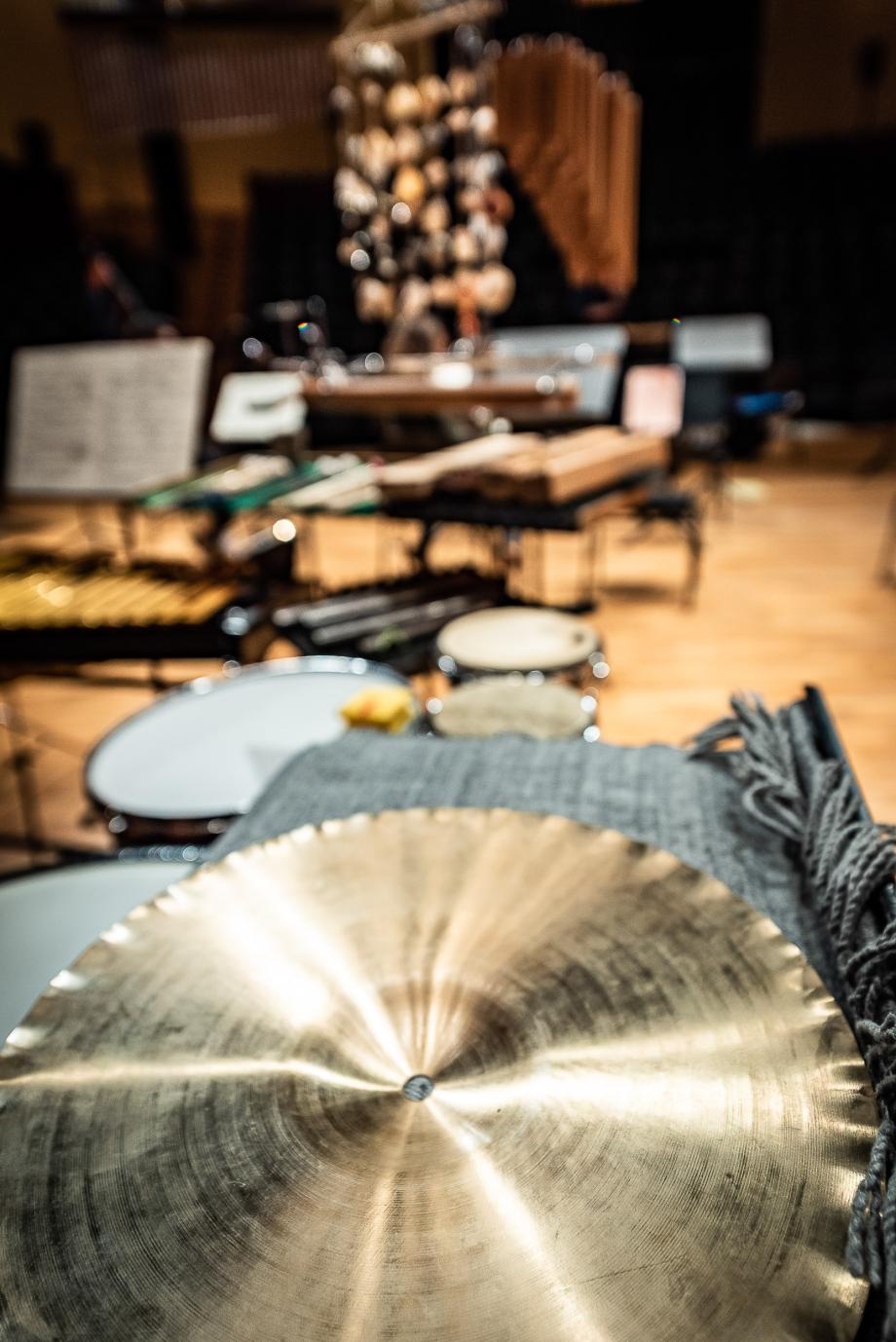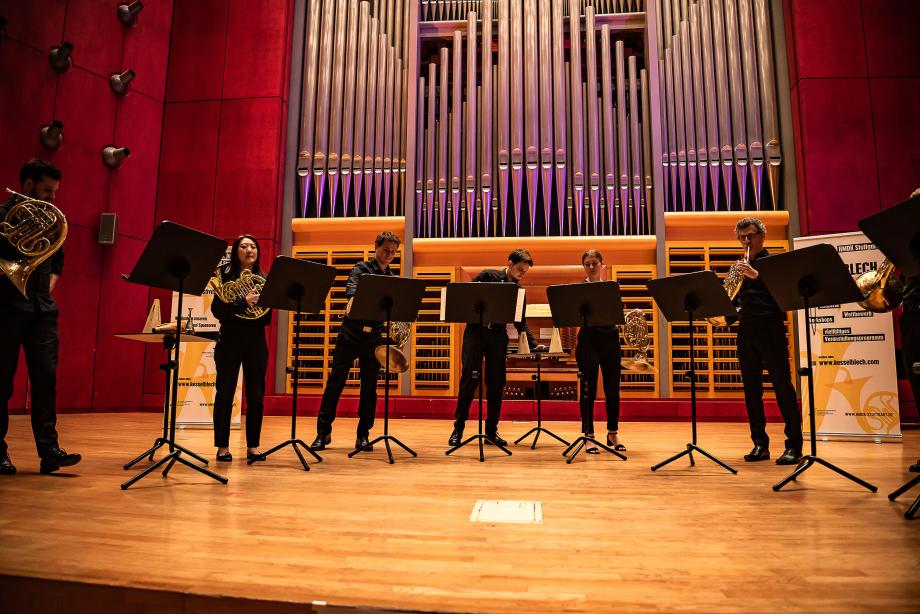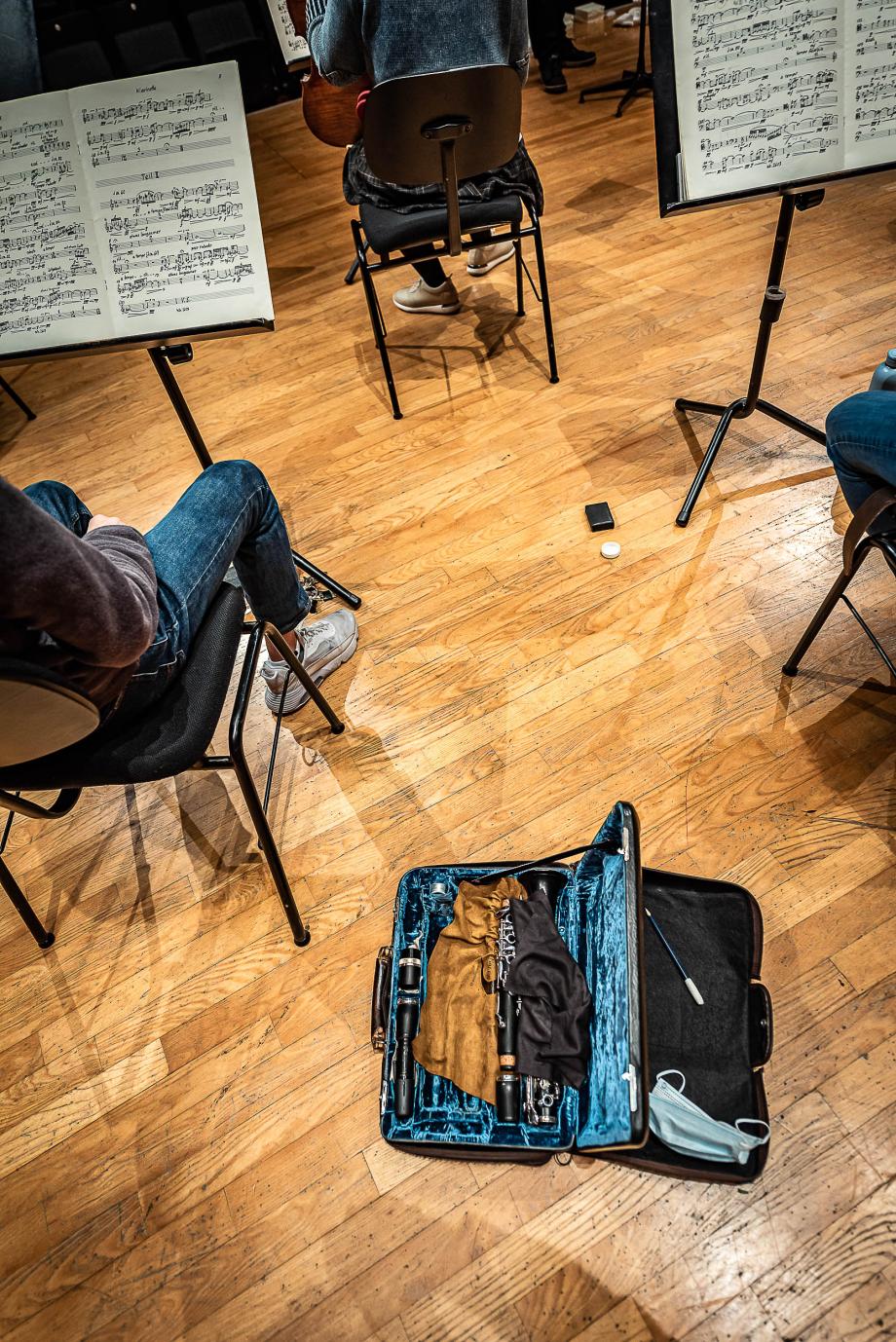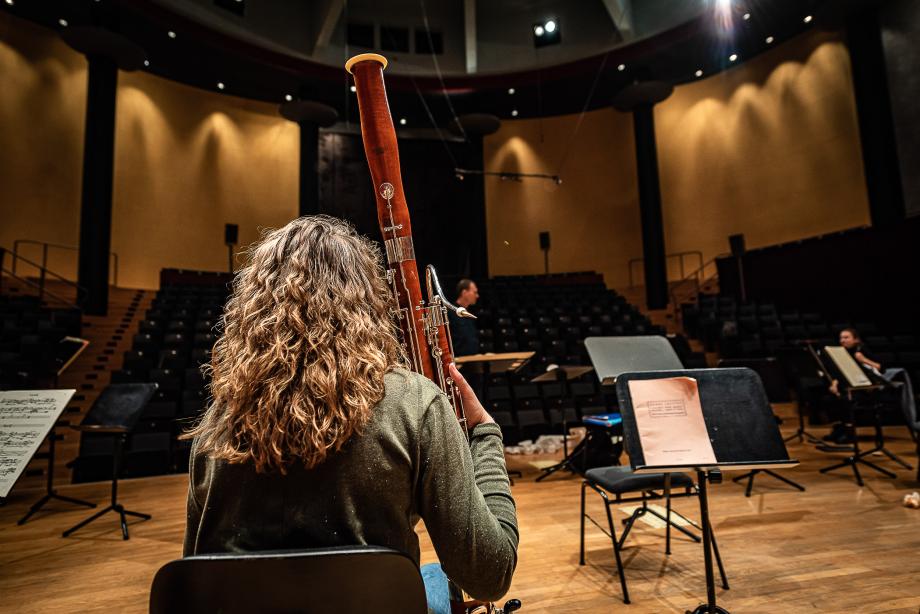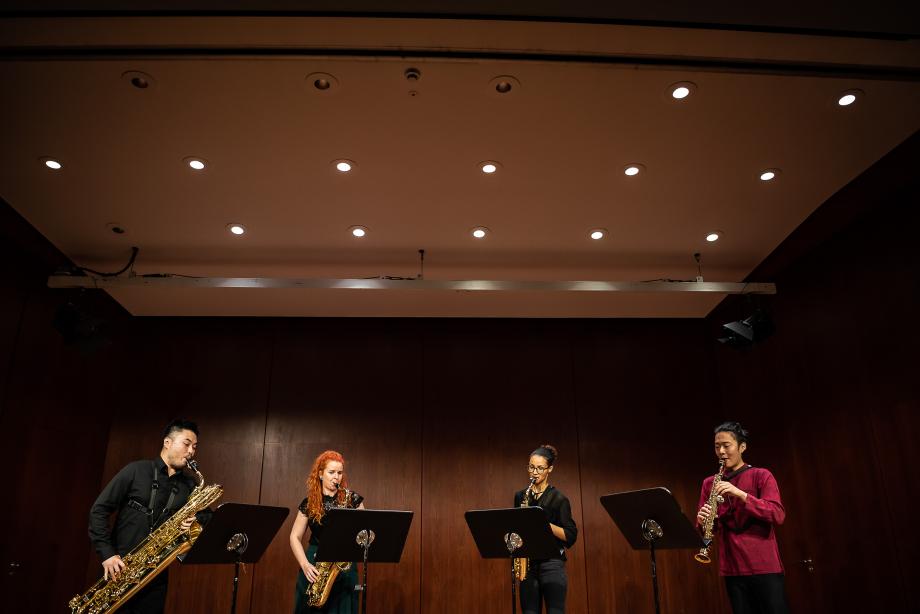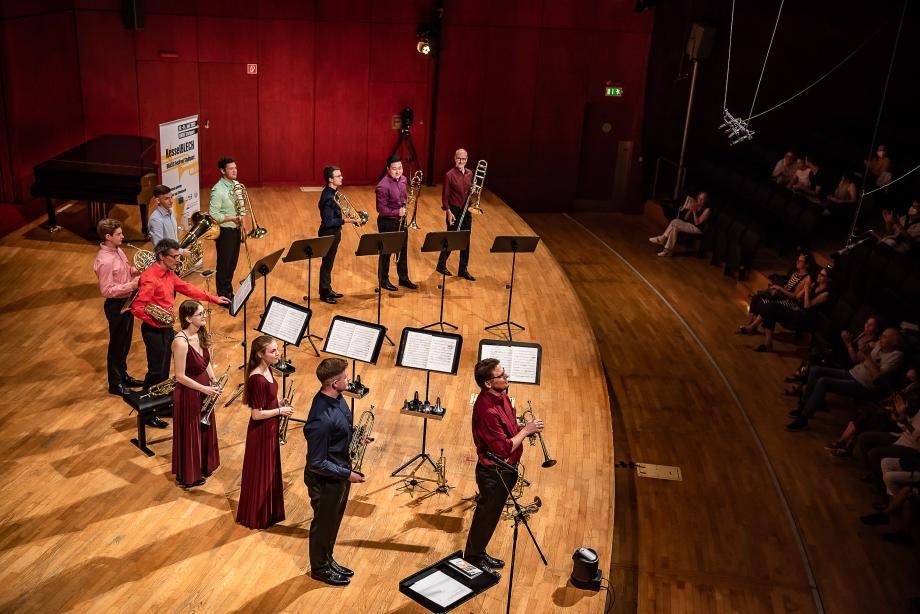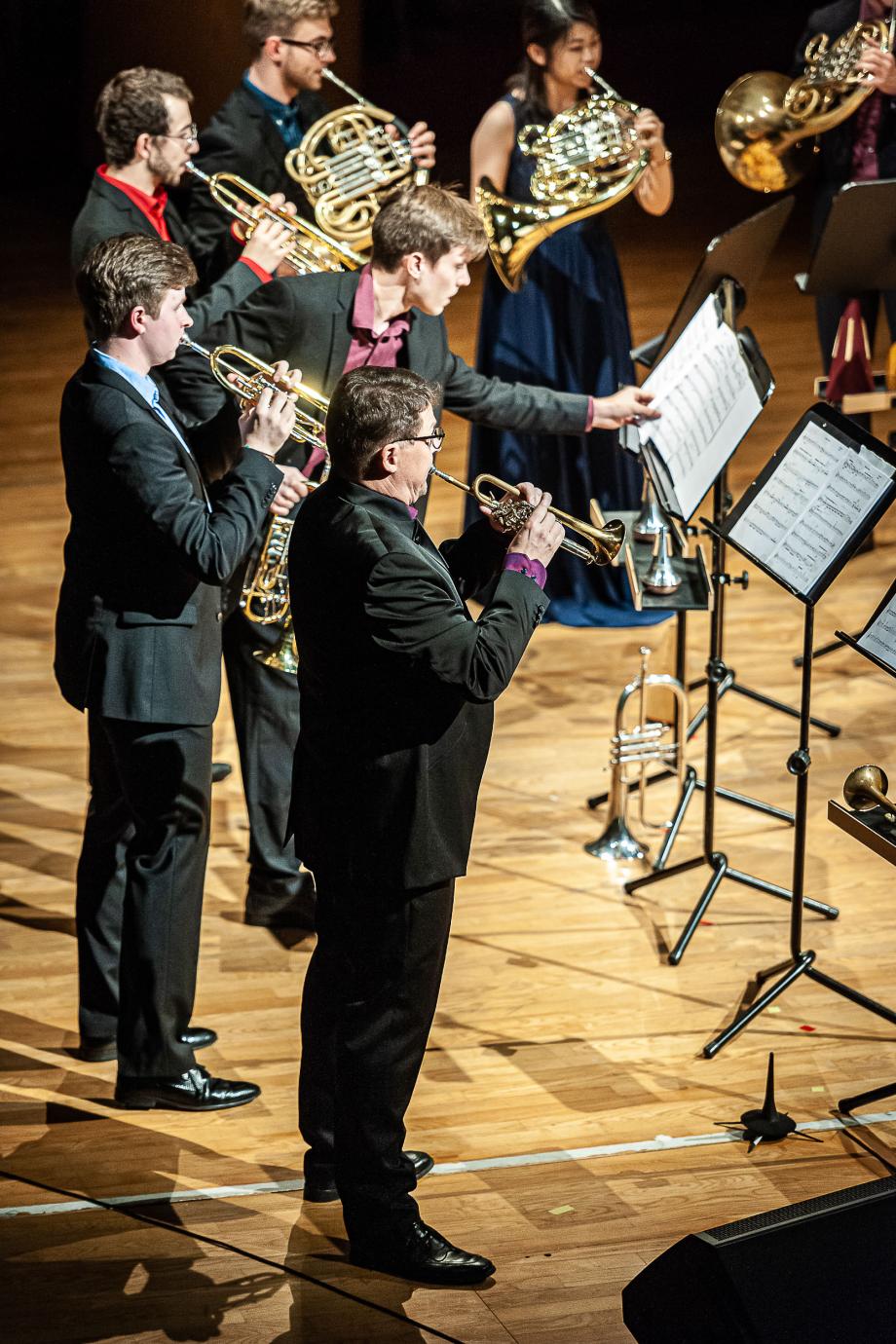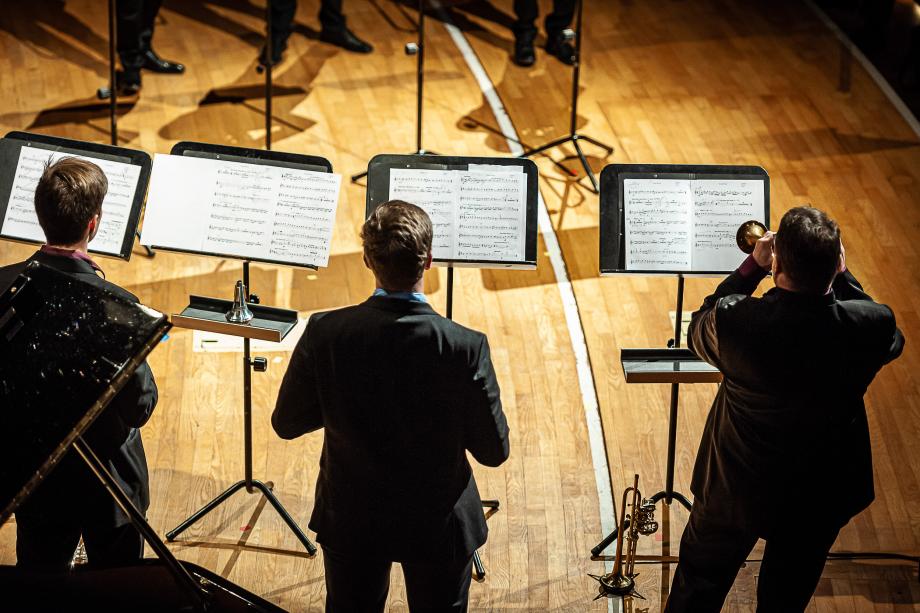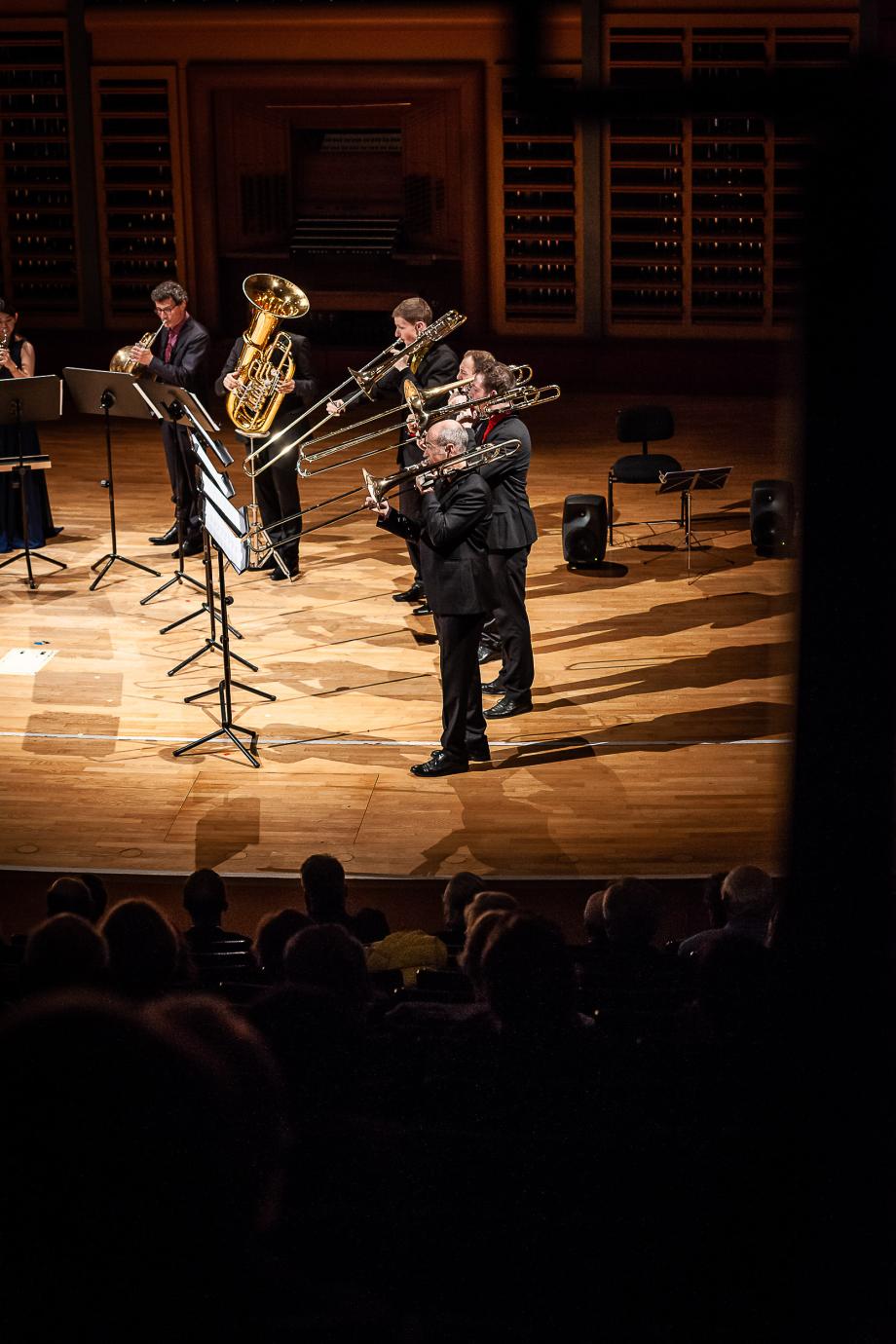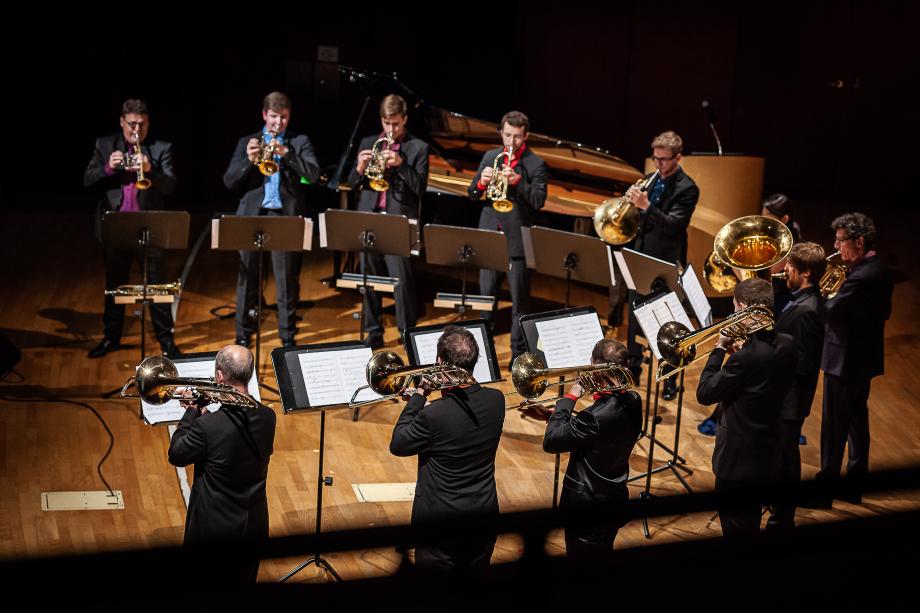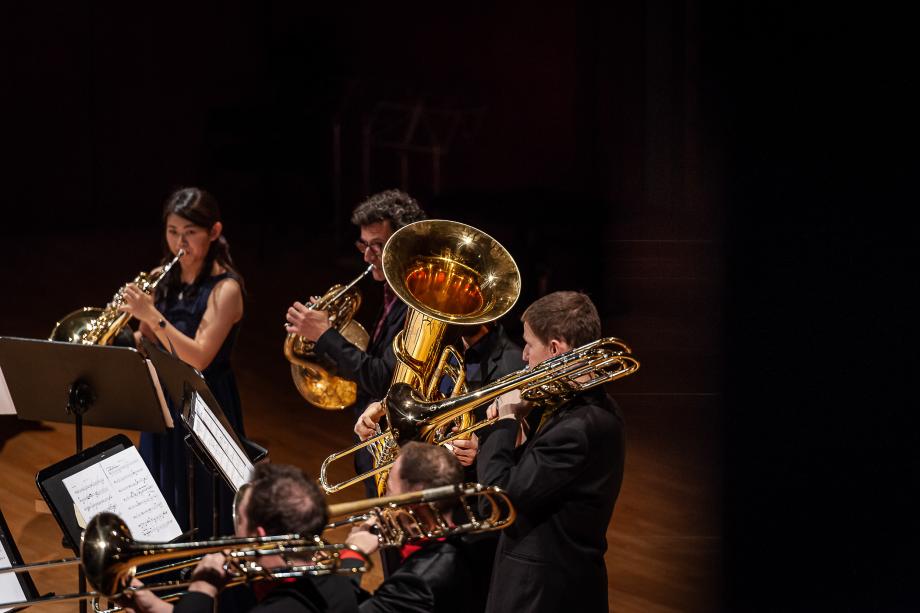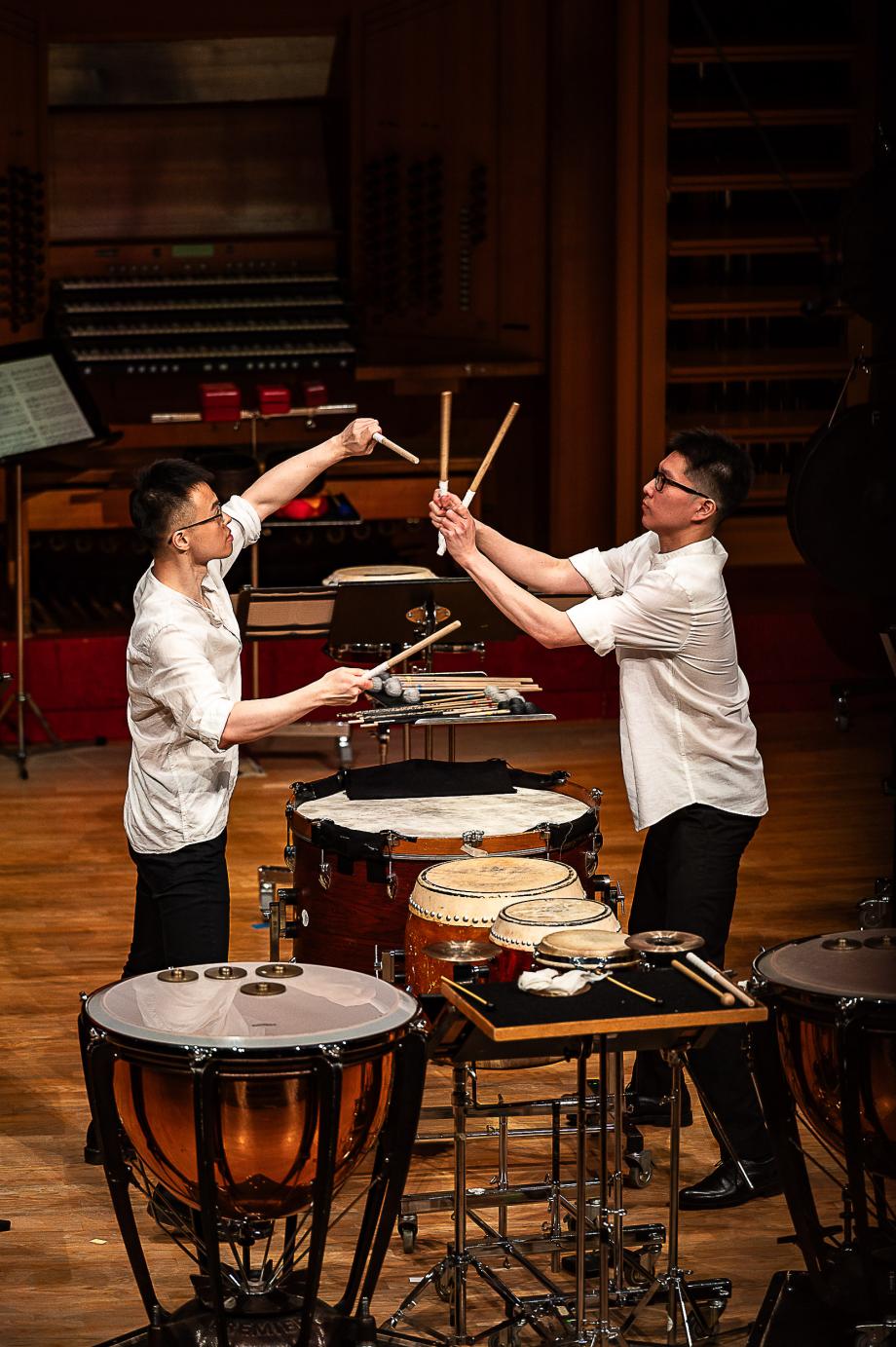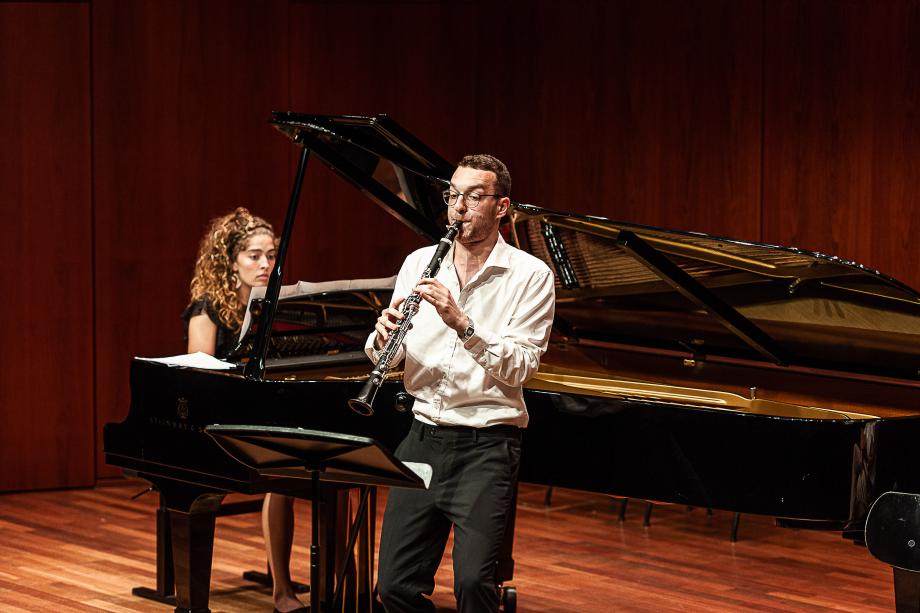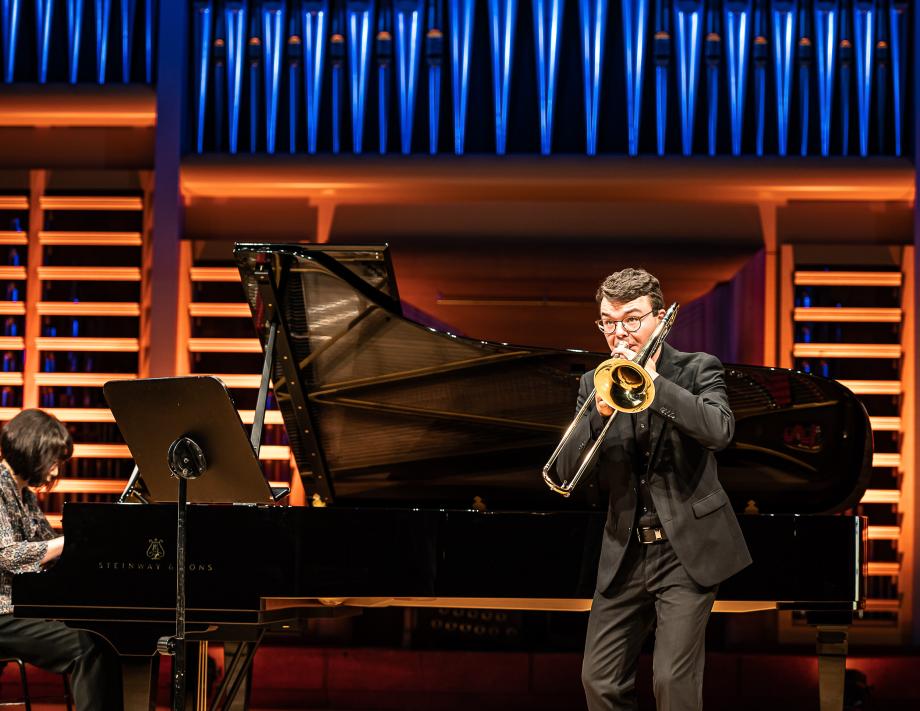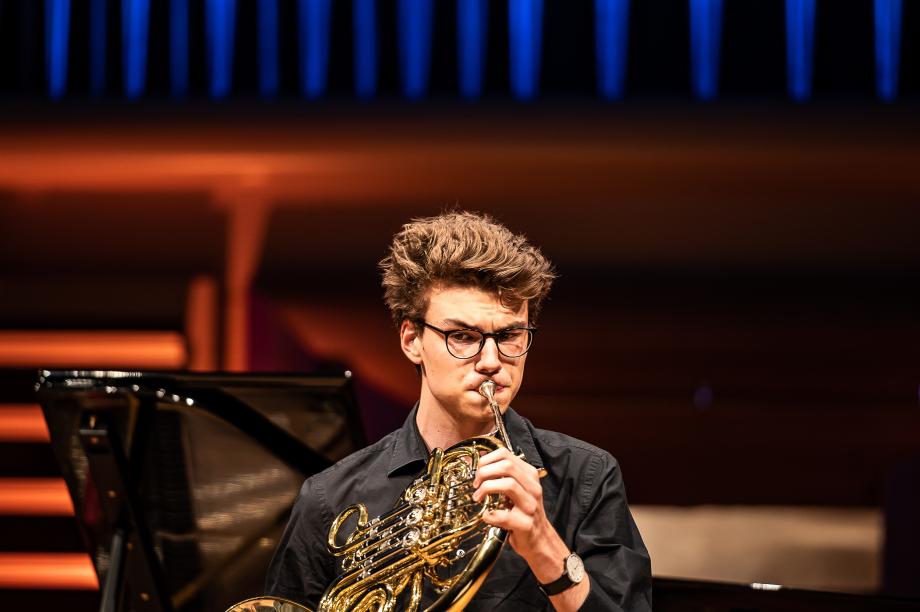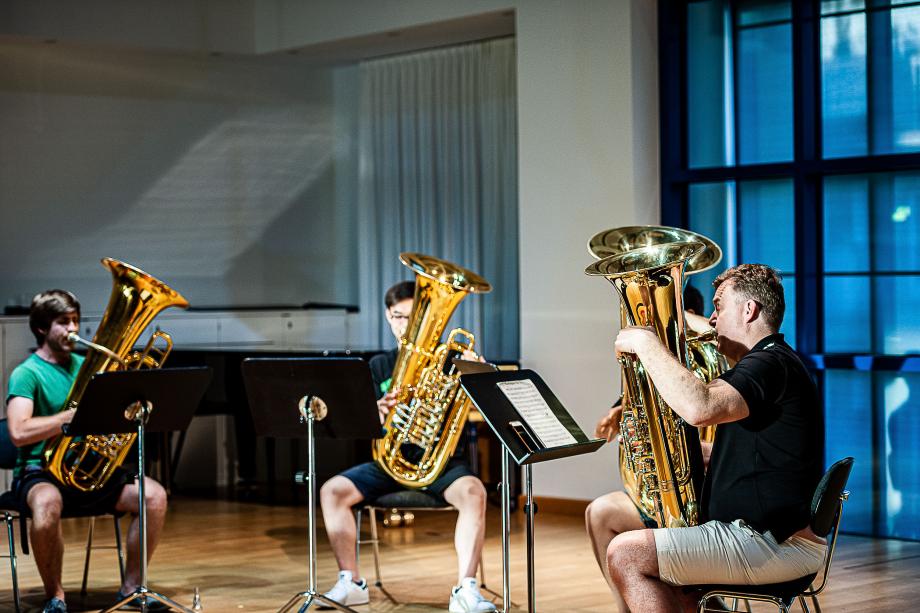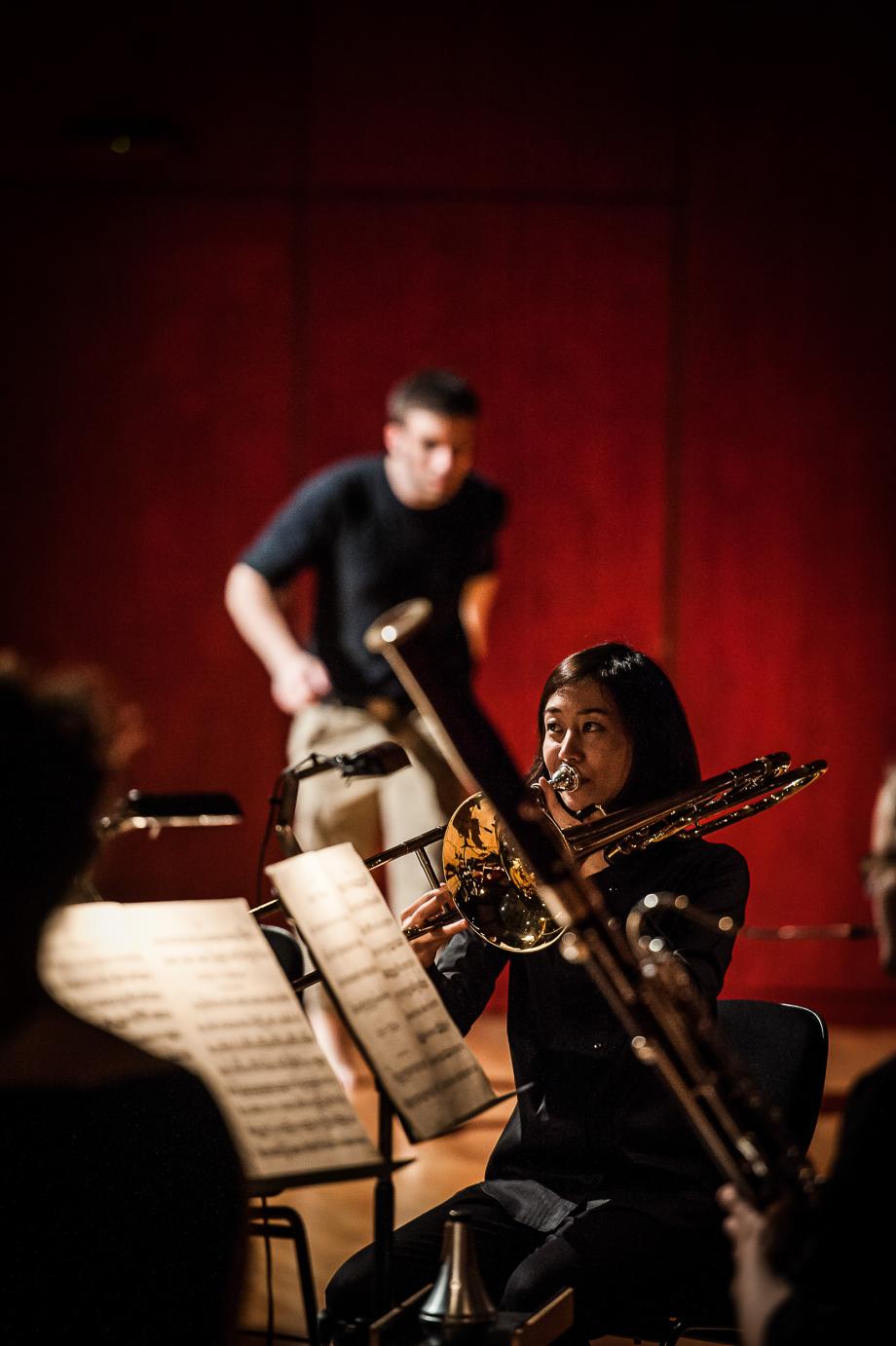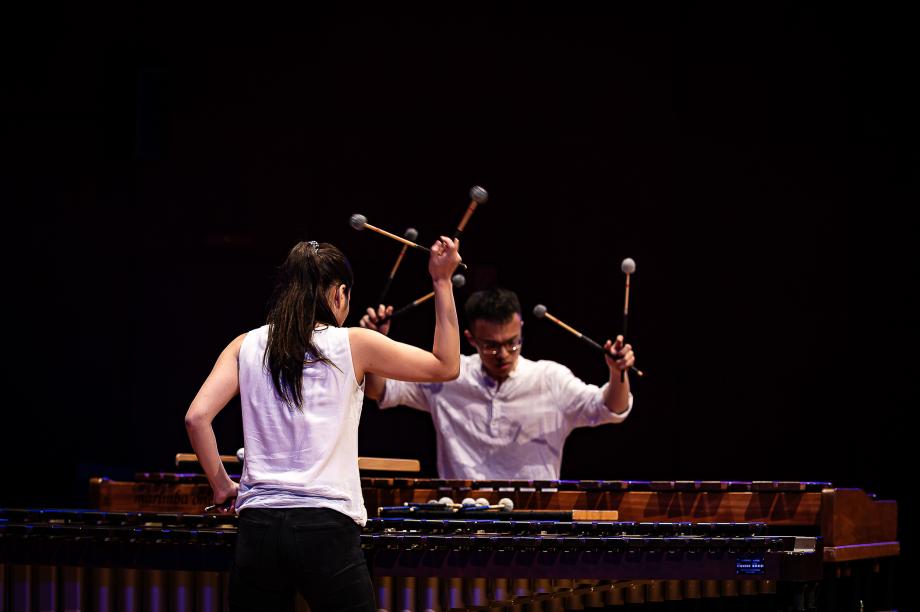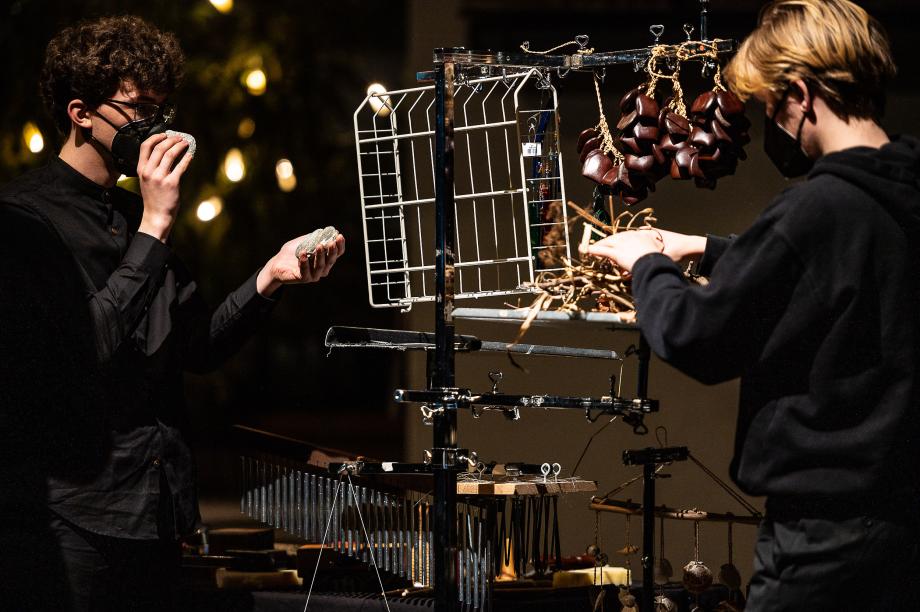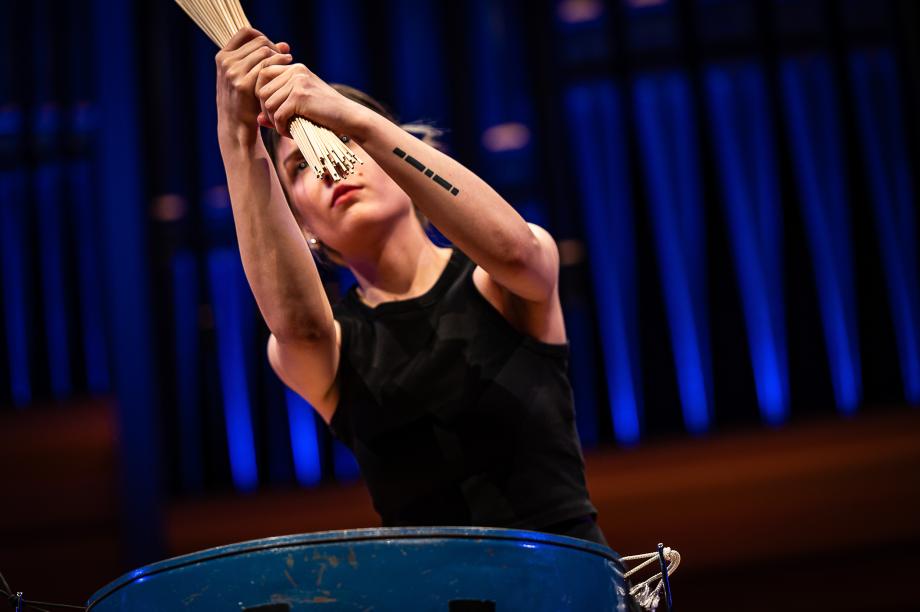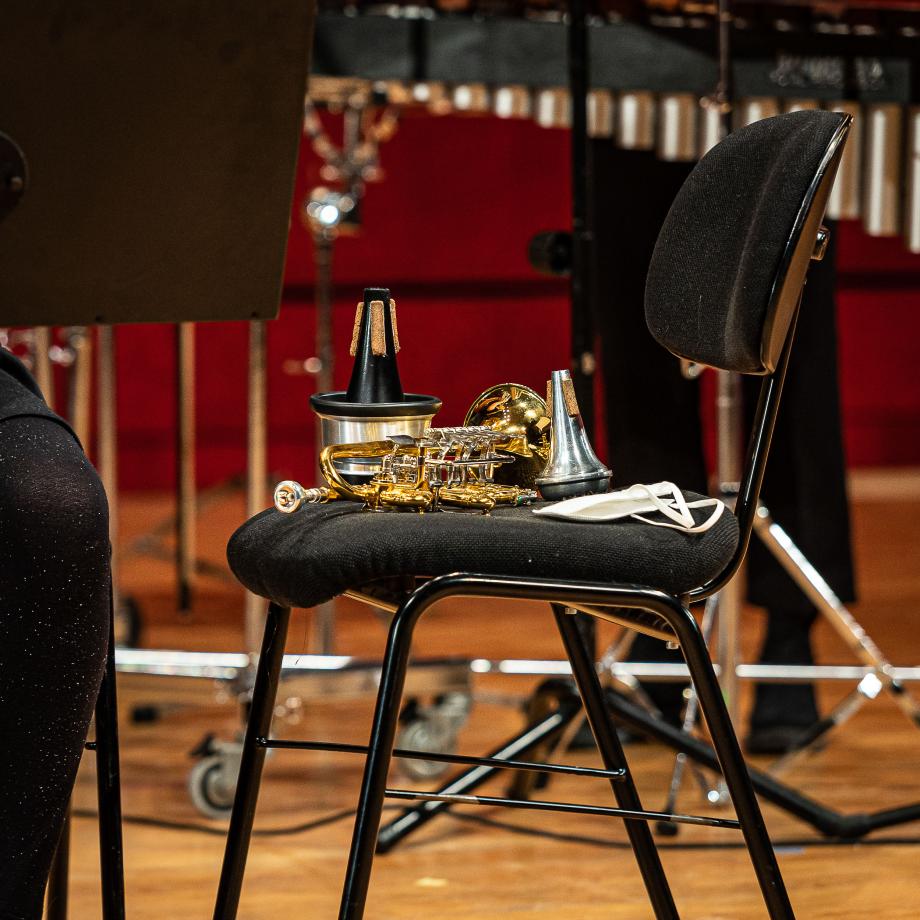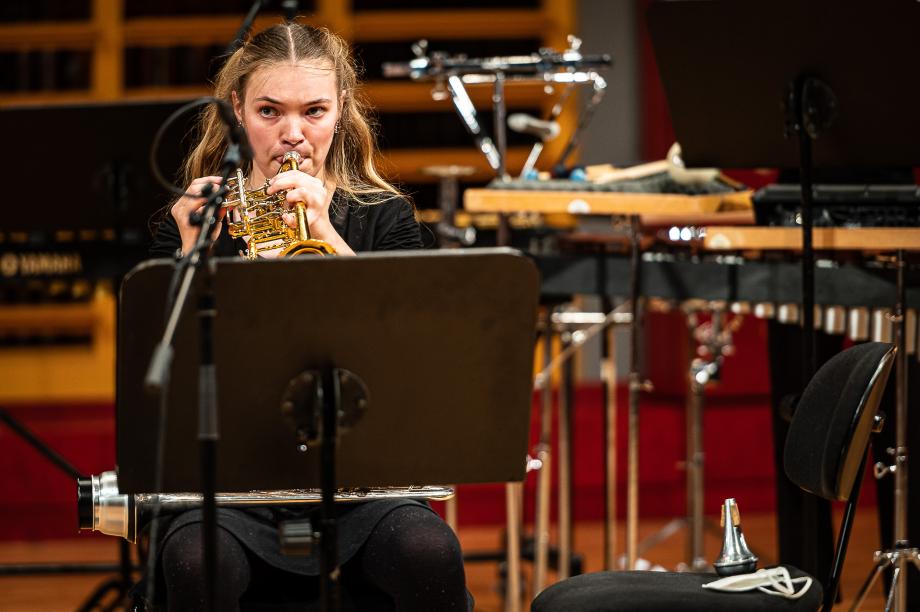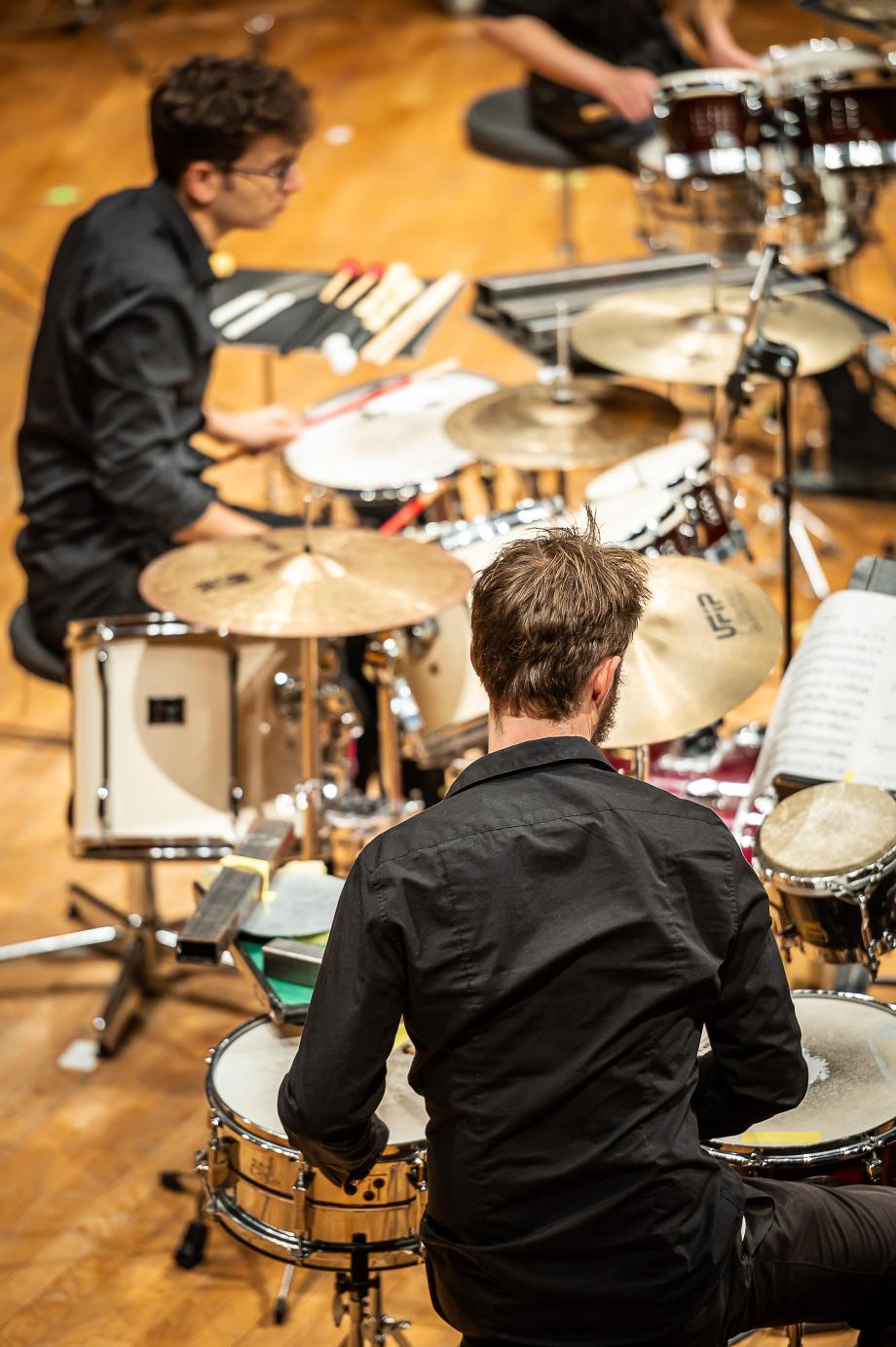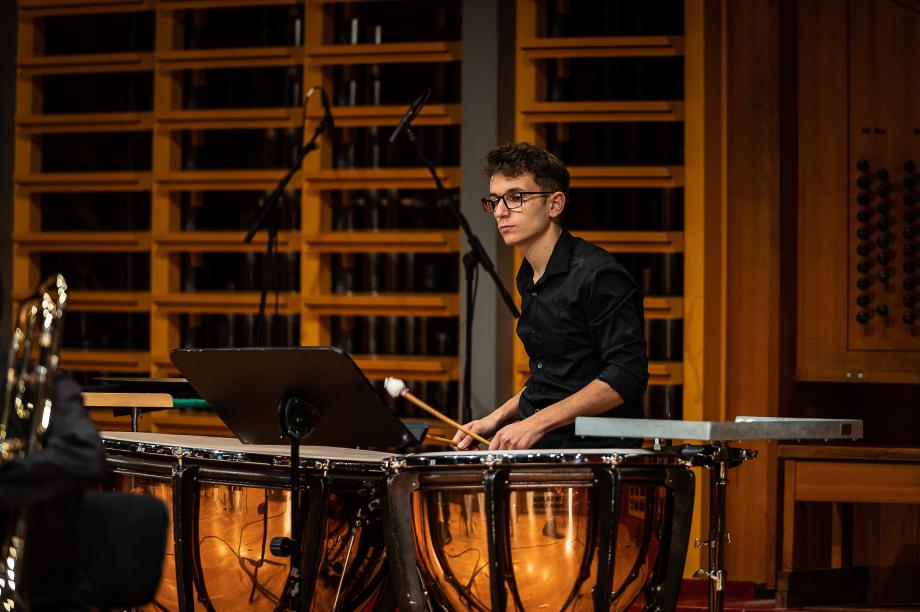Institute for Wind Instruments & Percussion
The best proof of successful work at a university are the professional achievements of its students and alumni. Numerous graduates of the Institute for Wind Instruments & Percussion at the HMDK Stuttgart have won prizes at major international competitions, hold leading positions in professional orchestras and top ensembles, or are successful in their solo careers.
Most of them continue to pass on the expertise gained during their studies through various musical activities in chamber music, opera and symphony orchestras, as well as in teaching positions as professors at universities in Germany and abroad, both artistically and pedagogically.
The Institute for Wind Instruments & Percussion teaches the classical woodwind and brass instruments of opera and symphony orchestras (flute, oboe, clarinet, bassoon; horn, trumpet, trombone, and tuba) as well as recorder and transverse flute, saxophone, and percussion at the three levels of Bachelor, Master, and Concert Exam.
The Bachelor of Music program provides an entry point into instrumental studies. Here, in consultation with the main subject teachers, various specializations (currently about 15) can be chosen, with the Orchestra Profile (artistic emphasis), the Instrumental Teaching Profile (pedagogical emphasis), and the Combined Profile Artistic-Pedagogical emphasis being the most common.
In the Master's program, analogous to the specializations in the Bachelor's program, there are various courses of study: Apart from the most common option, the Master's program in the main instrument (MA Orchestral Instruments), other options include MA New Music, MA Chamber Music, MA Instrumental Pedagogy, and MA Wind Orchestra Conducting, typically also available as a (part-time) "Weiterbildungs-Studium" (W-Master).
The Concert Exam program is the third cycle at HMDK and thus structurally corresponds to a doctoral program at scientific universities. As a purely artistic program, it allows the top students towards the end of their studies an intensive two-year engagement with the major concert repertoire of their field in the form of a soloist class.
An artistic doctorate with scientific elements is currently in preparation.
The Continuing Education program CAS (Certificate of Advanced Studies), a postgraduate program at an advanced level lasting two semesters, is a new study offering that leads to certification. Weekly lessons are complemented by numerous regularly offered projects and activities. From the "Stuttgarter Bläserakademie" to City Brass Stuttgart, from the "Schlagzeugnacht" to the "Sinfonische Bläserensemble", from Early Music to the "Kongress Mikrotonalität", to name just a few examples: Our students are actively involved in all of these, broadening their musical education – often at music stands alongside their teachers. Additionally, a bridge to professional orchestral work is also established with the "Stirling Phil Orchesterakademie" (Stuttgarter Philharmoniker) and Akademie 2030 (State Orchestra Stuttgart) – exclusively for HMDK students!
An excellent faculty is the foremost requirement in the national and international competition among conservatories. Our Institute can claim to be excellently positioned in this regard, as it is supported by professors whose solo careers, as well as extensive experiences in leading positions in renowned professional orchestras, inform their teaching activities today.
A special acknowledgment for the highest quality of their work at HMDK was received in 2017 by the professors Wolfgang Bauer, Stefan Heimann, Christian Lampert, and Henning Wiegräbe, when they were honoured and awarded the State Teaching Prize for their collaborative work in the field of brass instruments.
The professors are supported as responsible main subject teachers by colleagues who, as adjunct lecturers, provide expert instruction in secondary instruments, as well as by the accompanists, whose collaboration is an indispensable requirement for every successful comprehensive instrumental study.
There are specific professorships, teaching assignments, or fixed teaching hours for important areas: All common secondary instruments such as piccolo, English horn, bass clarinet, contrabassoon, baroque trumpet, bass trombone, and orchestral percussion, as well as areas like wind chamber music, wind orchestra conducting, and percussion ensemble, are covered by dedicated teachers.
Regular audition practice, instrument-specific didactics/methodology, and a variety of specialized guest courses ranging from topics in health/prevention to instrument making and high-level master classes complement the instructional events at the Institute for Wind Instruments and Percussion, making it one of the most extensive and diverse educational offerings in national and international comparison.
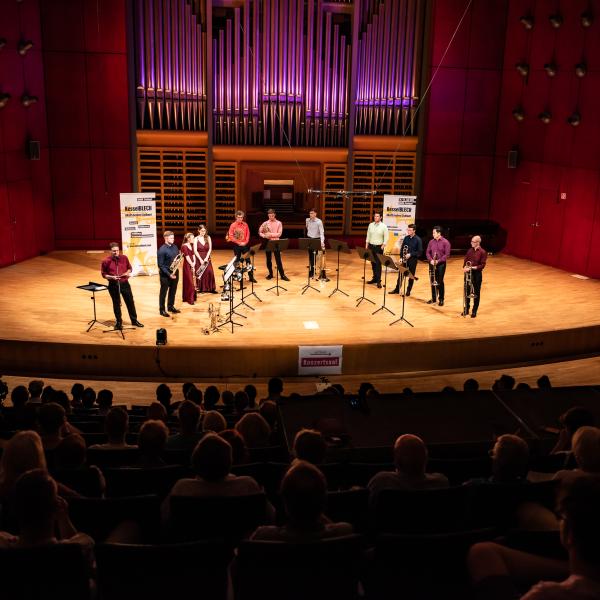
Resonanz 2021 ZEST for Life (Auszüge)
Resonanz – Widerhall. Etwas, das nachklingt, -schwingt, -singt, -spielt. Zest for Life – Lebensfreude heißt der dritte Teil dieses Stückes. Es gibt wohl keinen passenderen Titel für diese CD! Möge also die während der Aufnahmen wiedererwachte, spürbare Spielfreude bei Ihnen, unseren Zuhörerinnen und Zuhörern, in diesem Sinne in und außerhalb der HMDK Stuttgart resonieren!
Prof. Wolfgang Bauer, Prof. Stefan Heimann, Prof. Henning Wiegräbe, Prof. Christian Lampert
Courses of study
Download
Zur Bläserausbildung (PDF)
von Prof. Marc Engelhardt – Spektrum 24
Questions and Contact
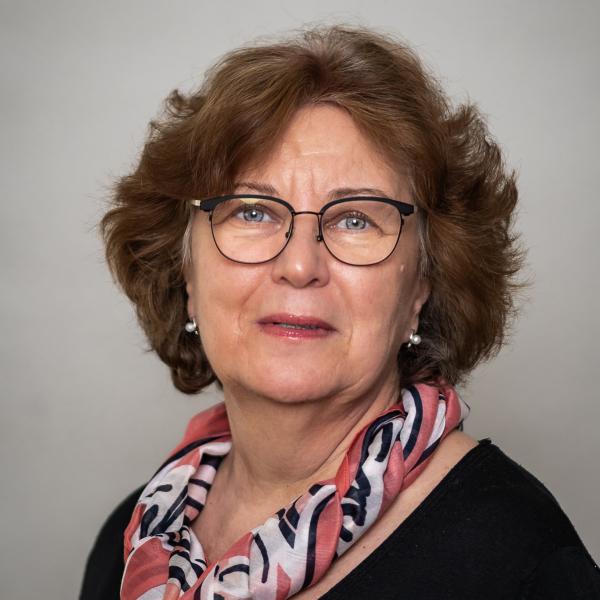
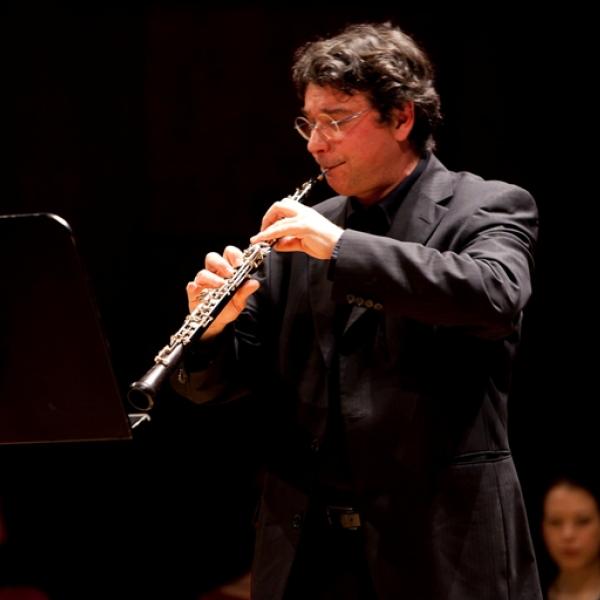
Wind orchestra conducting
Occupational profile & Studies
Fields of work & Perspectives
Contents (depending on the profile)
Cooperations
Fields of study and profiles
Questions and Contact
